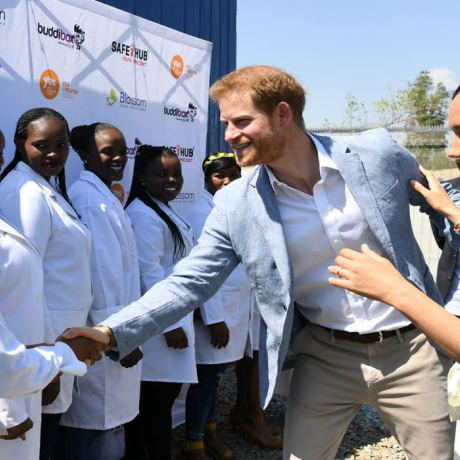- Day 1 - South Africa
- Day 2 - South Africa
- Day 3 - South Africa
- Day 4 - Botswana
- Day 5 - Angola
- Day 6 - Angola
- Day 7 - Malawi
- Day 8 - Malawi
- Day 9 - Malawi and South Africa
- Day 10 - Johannesburg
Day 1 - South Africa
This week The Duke and Duchess of Sussex have embarked on their first visit in Southern Africa.
Their first engagement saw them visiting the “Justice Desk” organisation in the Nyanga township of Cape Town.
This programme teaches young children about their rights, self-awareness and safety, and provides self-defence classes and female empowerment training to young girls in the community.
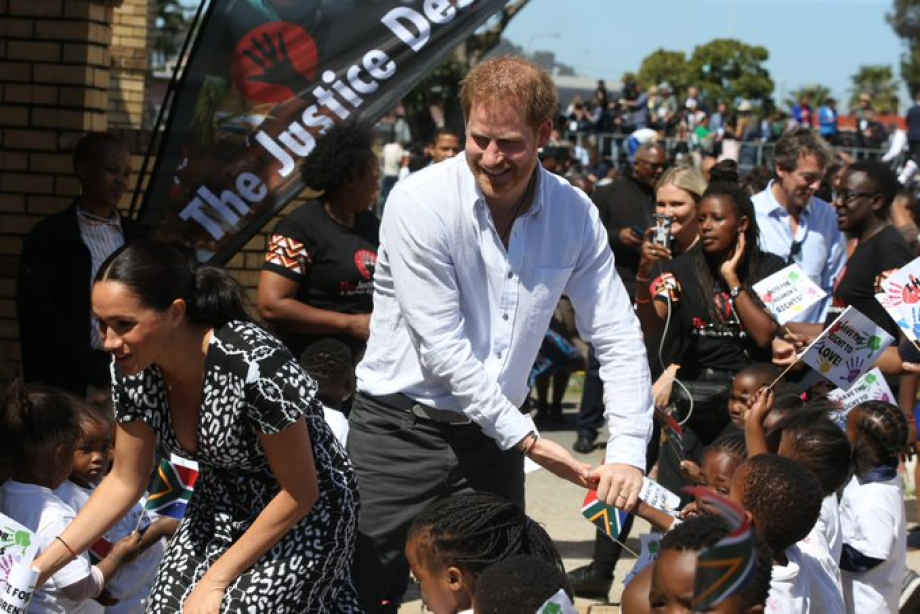
The Justice Desk is led by Queen’s Young Leader, Jessica Dewhurst and is supported by The Queen’s Commonwealth Trust (QCT)
The Queen is Patron of The QCT, The Duke is President and The Duchess is Vice-President.
Jessica received her Queen’s Young Leader’s Award in 2016 from Her Majesty The Queen.
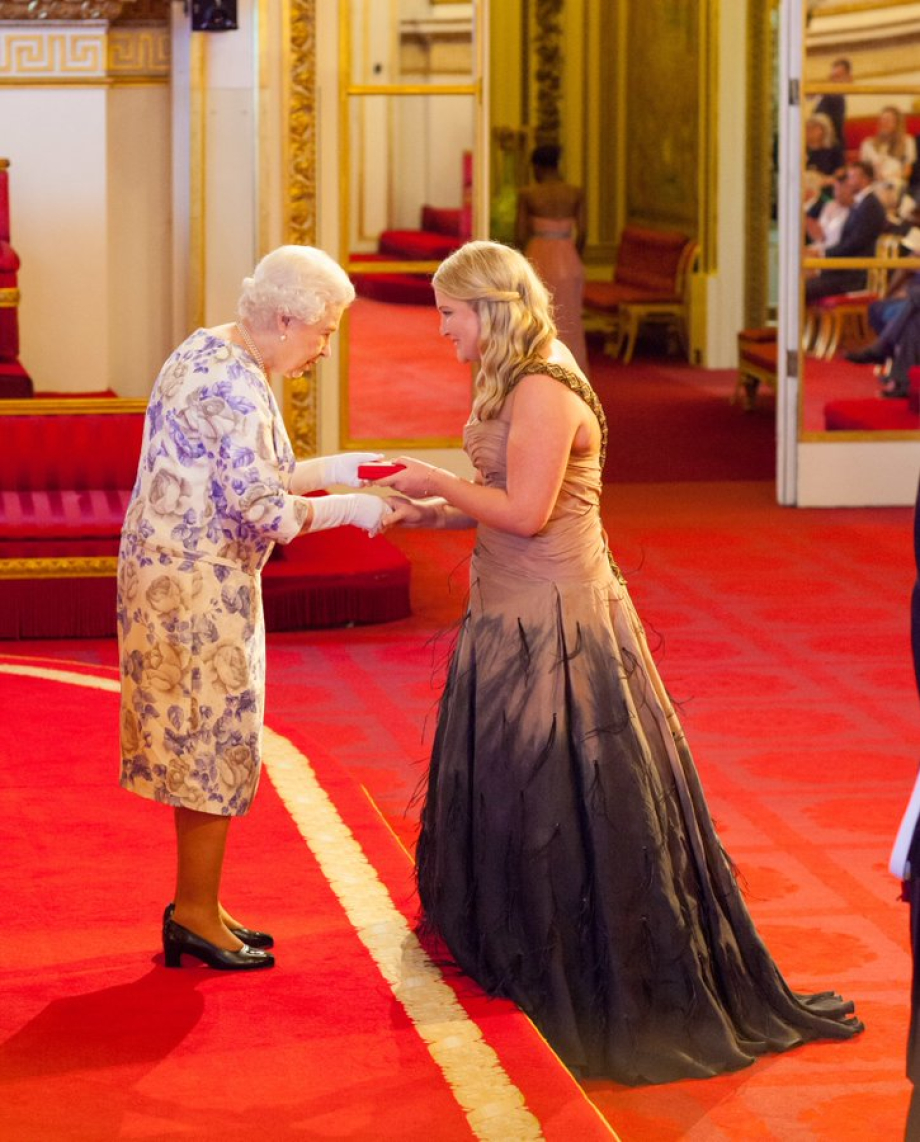
The four-year Queen’s Young Leader’s programme was launched in 2014. Hundreds of exceptional young people from across the Commonwealth have been given an Award from The Queen for their contributions to their communities.
To date, the Justice Desk has directly assisted over 35,000 individuals, schools and communities.
During the session the young girls experienced training in four groups and Their Royal Highnesses learned more about the activities, before having a discussion with the participants.
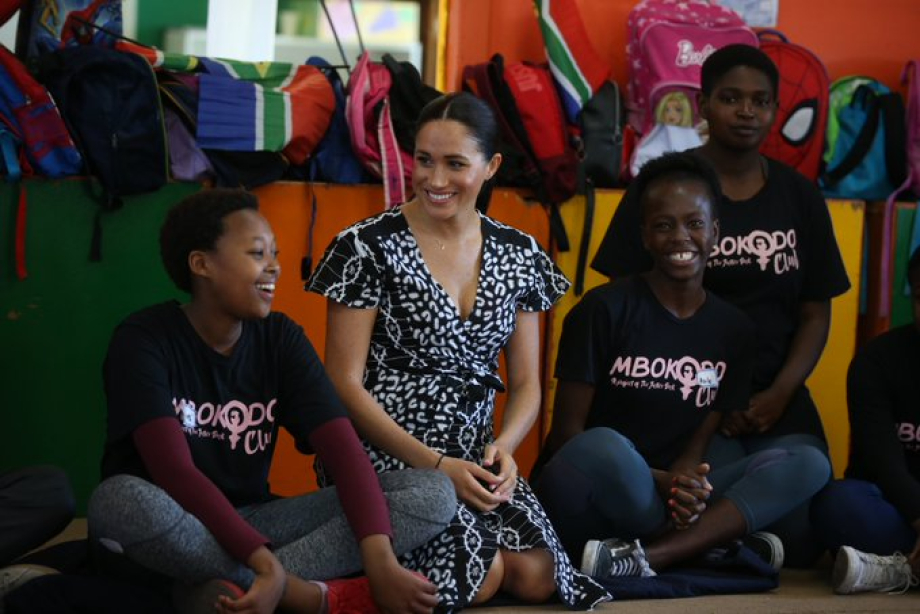
In the afternoon Their Royal Highnesses visited District 6 – an area of Cape Town which in 1966 was declared “whites-only” and saw over 60,000 residents from different races and communities forcibly removed and relocated.
The Duke and Duchess had a chance to see an interactive map, explaining the history of District 6.
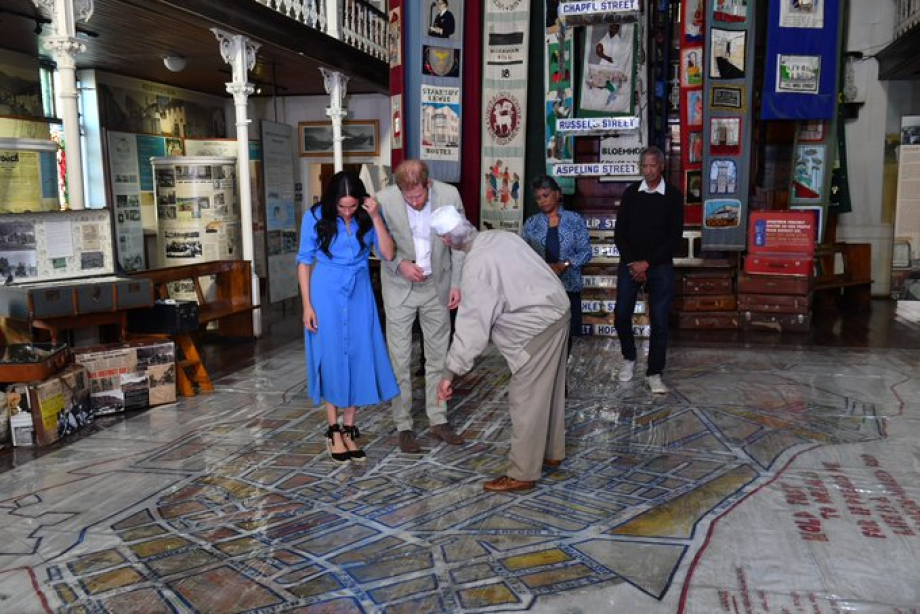
They also viewed music and cultural exhibits, accompanied by an artist, jazz musician and former resident of the area.
They then visited the District 6 Homecoming Centre where Their Royal Highnesses had a chance to meet a group of former residents.
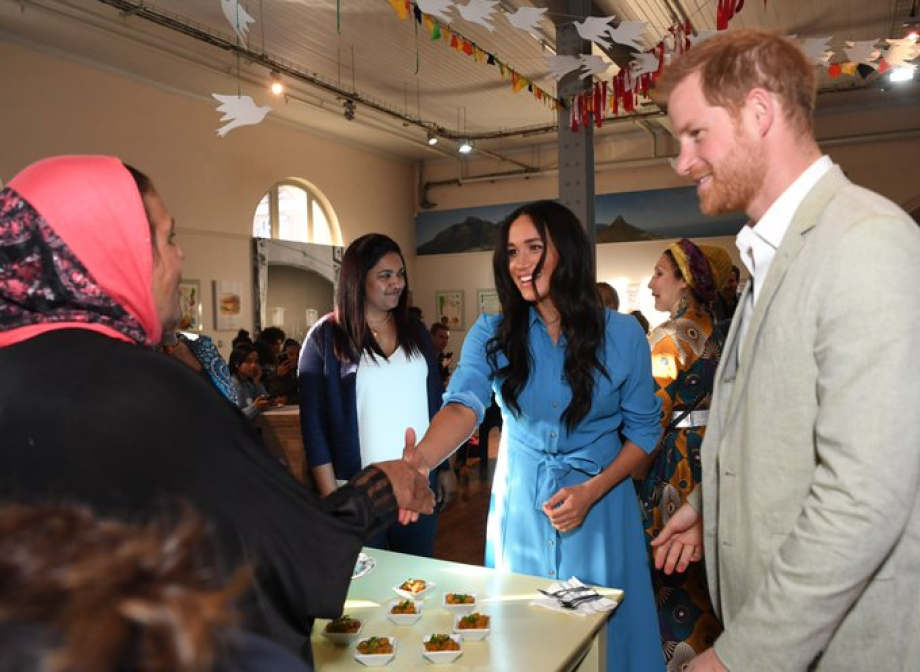
The Homecoming Centre was built to provide former residents with a meeting place, to return to where they used to live, share their memories, cook together, create music and take part in cultural activities.
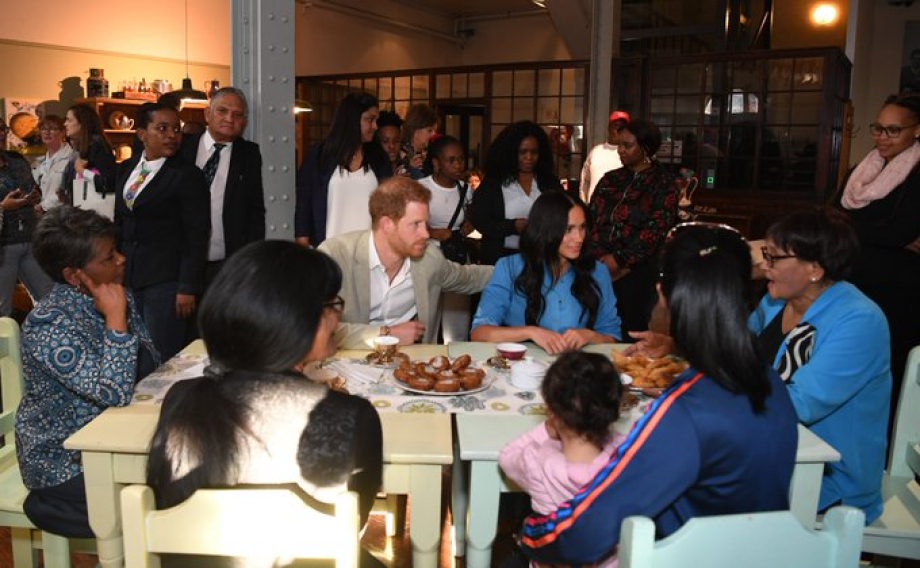
Day 2 - South Africa
On the second day of The Royal Visit to South Africa, The Duke and Duchess of Sussex attended several engagements including visiting a mental health service which supports young people, a Marine Unit which works to combat poaching and the oldest mosque in South Africa.
Their Royal Highnesses also attended a Youth Reception at the British High Commission and marked Heritage Day - a celebration of the diversity of cultures in the country.
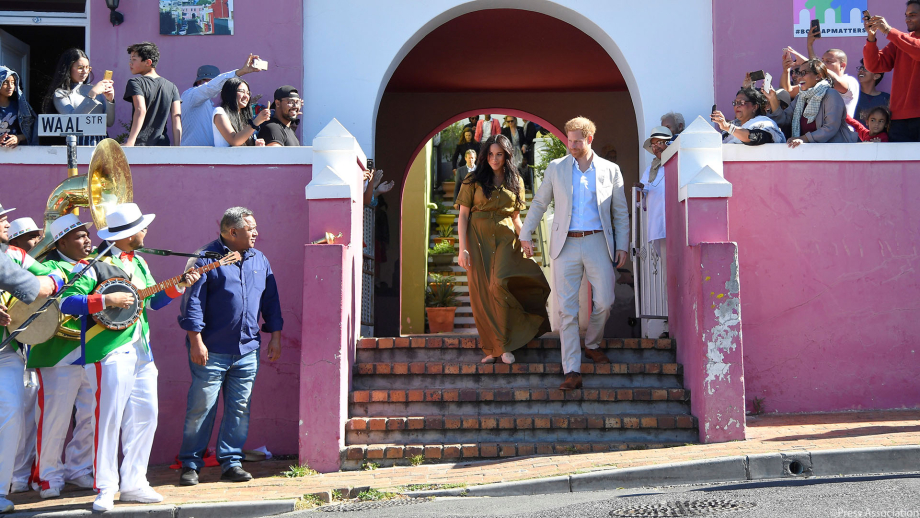
At Monwabisi Beach TRHs visited "Waves for Change" which supports vulnerable young people in under-resourced communities, providing them with "Surf Mentors" who use group activities to promote positive thinking.
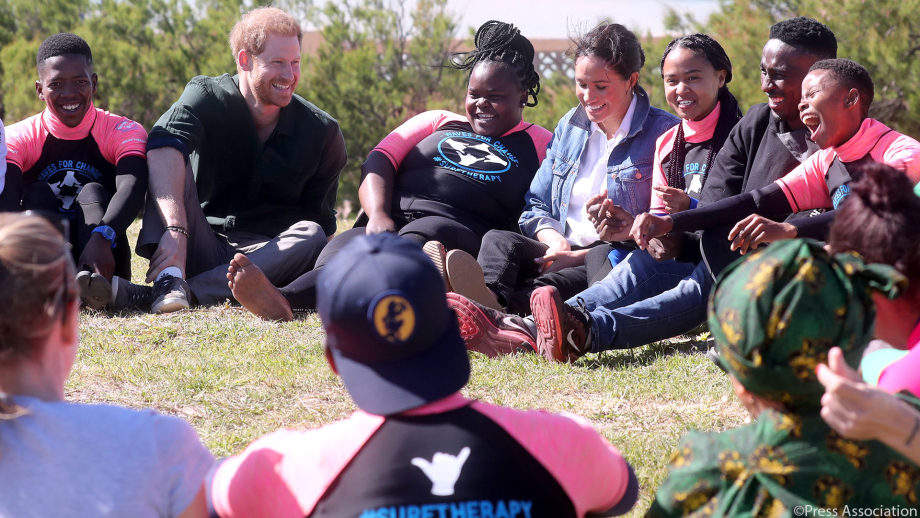
Their Royal Highnesses met the surf mentors and joined them in a circle for a “welcome Kilo” (a welcoming chant, call and response game).
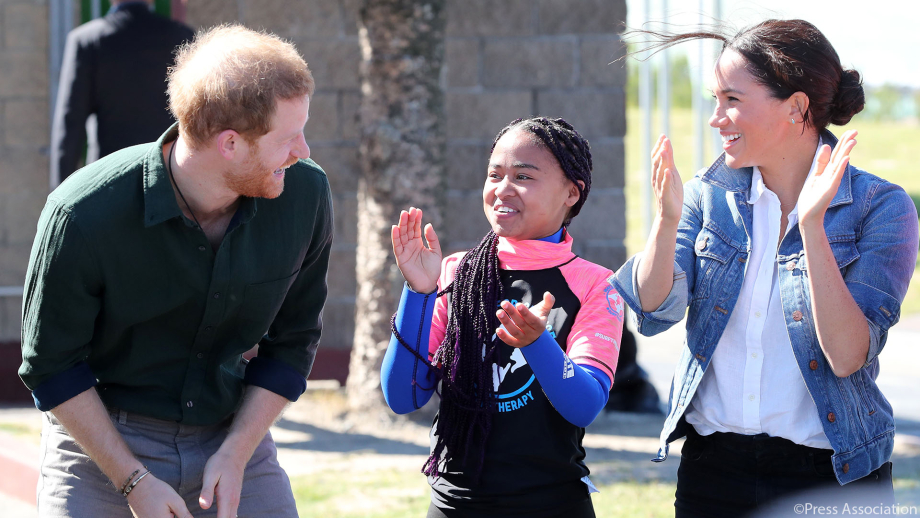
The Duke and Duchess also learned about the work of the UK’s Commonwealth Litter Programme which funds research and action to tackle plastic waste. They heard about the impact of micro-plastics in the ocean and were given a demonstration in the micro-laboratory.
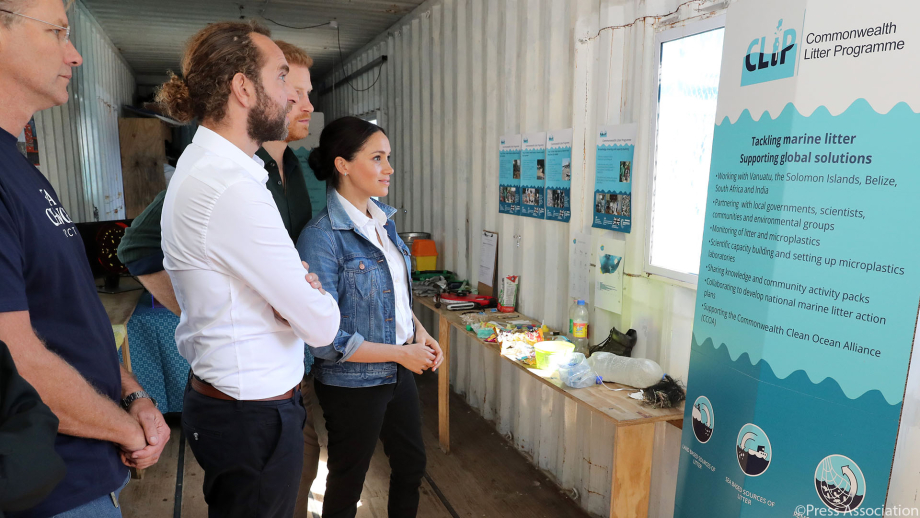
In his capacity as Captain General of The Royal Marines, a role he was appointed to by The Queen in 2017, The Duke of Sussex visited "Seal Island" with officers from the City of Cape Town Marine Unit (MPU).
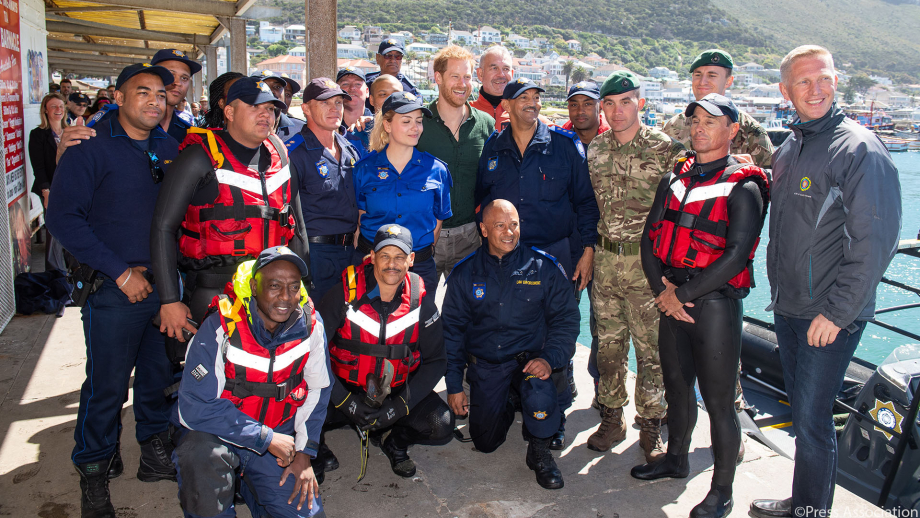
In South Africa, The Royal Marines have been providing training to the MPU and The Duke found out more about their work in combatting the poaching of Abalone (a type of sea snail), one of South Africa's illegal wildlife trade concerns.
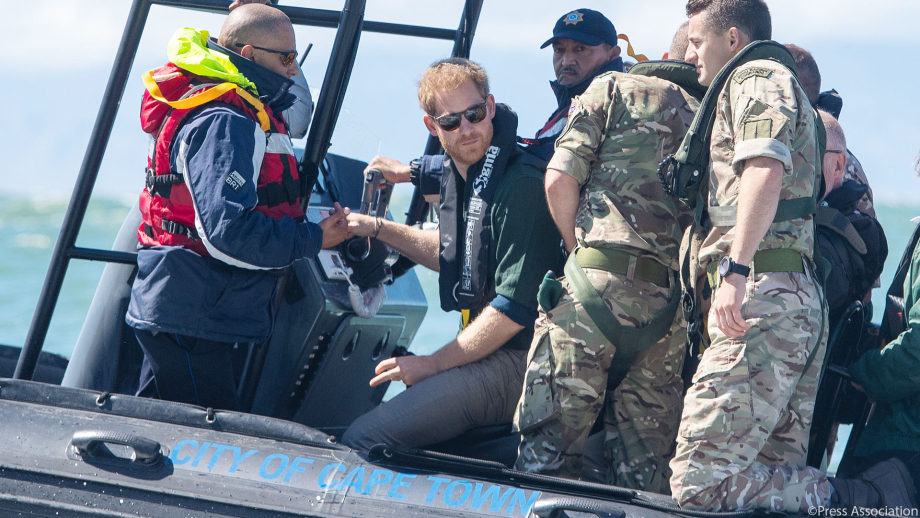
Abalone is now at critically low levels because of over-exploitation and poaching, according to a report by wildlife specialists TRAFFIC.
In Bo Kaap, Cape Town, TRHs visited Auwal Mosque which was built in 1794, talked to faith groups to find out about the work the do in the communities and viewed the first known Qu’ran in the country.
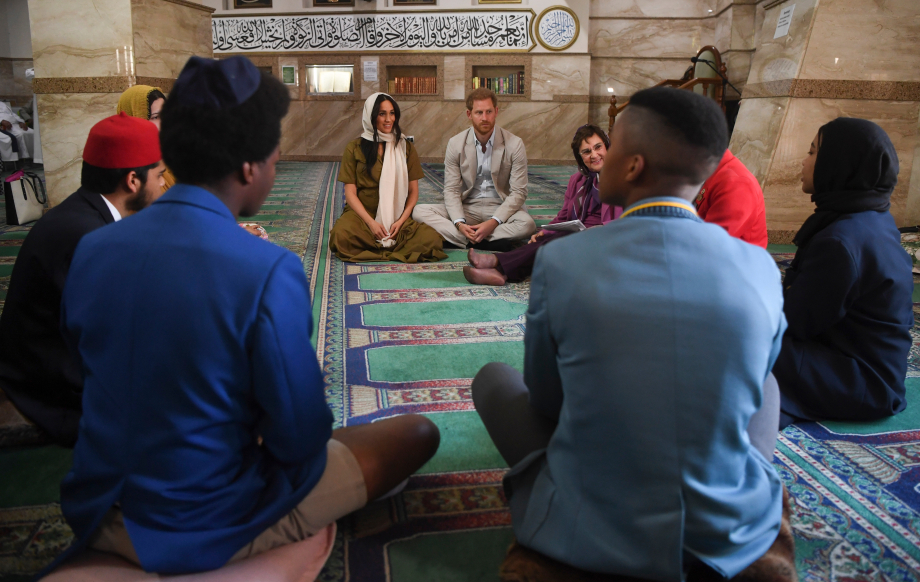
The Auwul Mosque welcomes visitors of all denominations and hosts inter-faith dialogues to develop inter-communal and inter-faith understanding between South Africa’s varied communities.
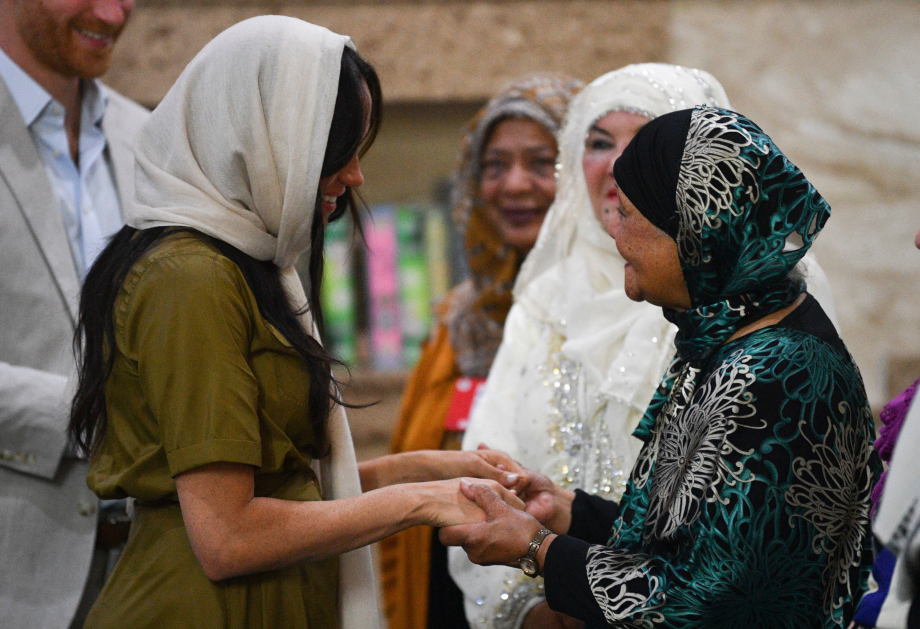
Their Royal Highnesses were also introduced to a group of young people who have taken part in programmes run by the Cape Town Interfaith Initiative.
The programme works with young people (15-18 year olds) to help develop respect for people from different religions, faiths cultures and backgrounds and an appreciation of the value of diversity.
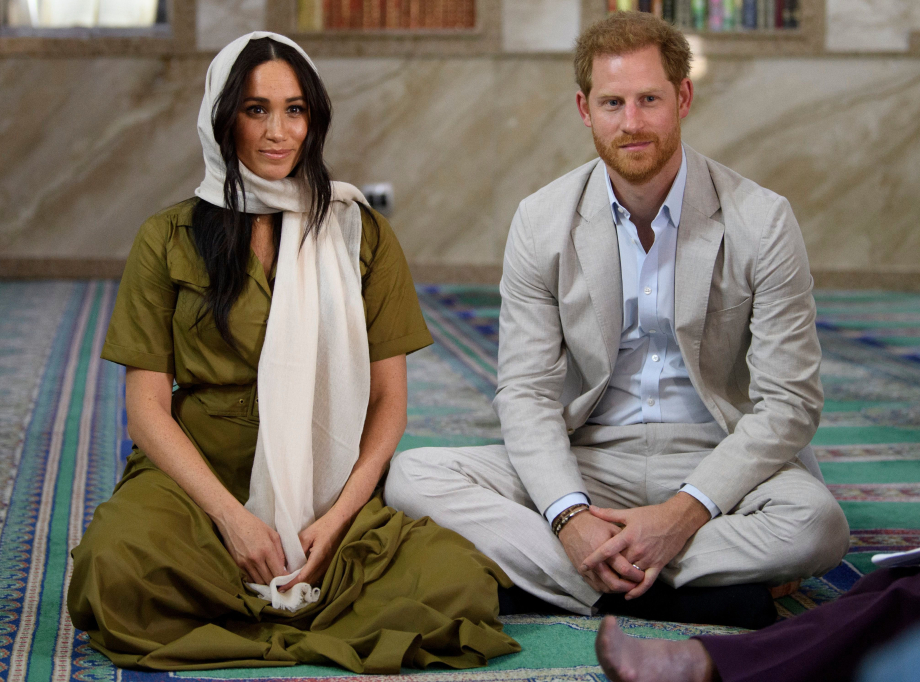
The Duke and Duchess of Sussex then undertook a public walkabout through the multicultural neighbourhood of Bo-Kaap where the community celebrated Heritage Day.
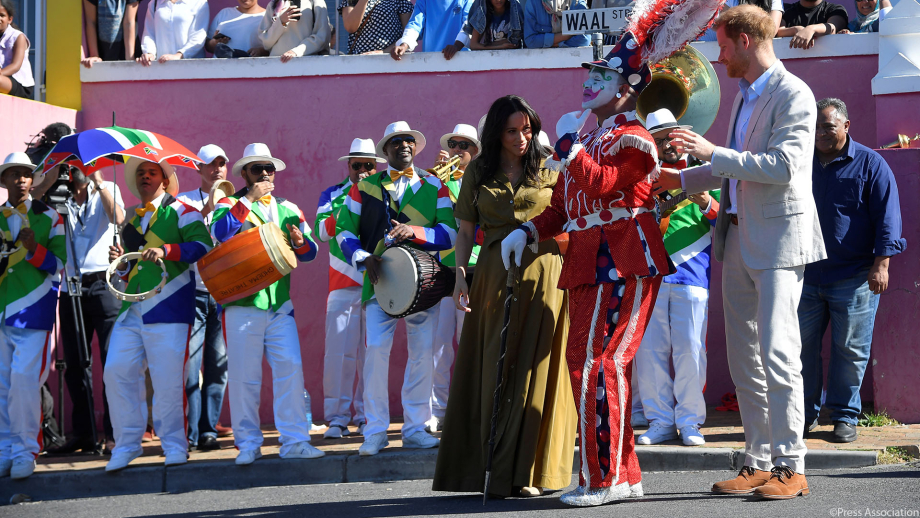
It is marked every year as a public holiday and recognises and celebrates the cultural wealth of South Africa.
Events staged throughout the country demonstrate various aspects of living heritage, including traditional dress, food, performance and oral history.
At The British High Commissioner’s Residence The Duke and Duchess met young inspirational people and celebrated the UK’s modern partnership with South Africa.
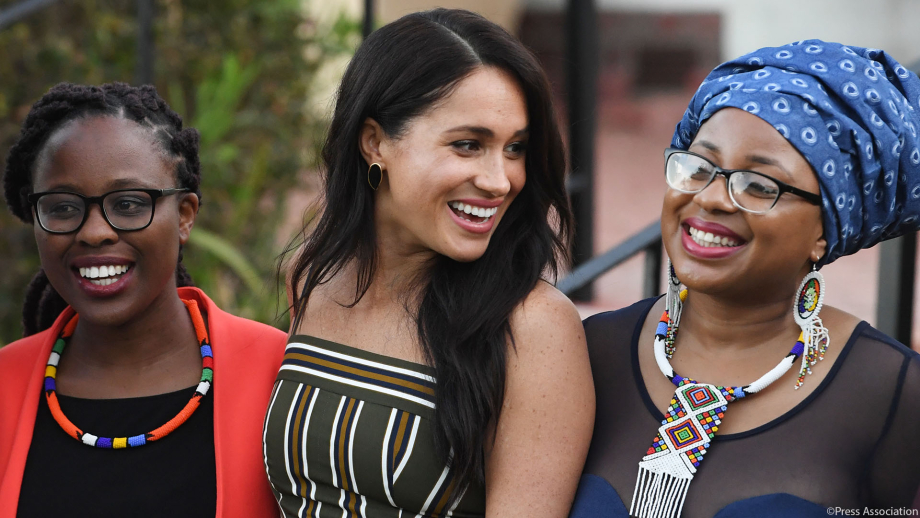
Their Royal Highnesses were hosted by the British High Commissioner to South Africa, Mr Nigel Casey and an African choir sang to signal their arrival to the guests in attendance.
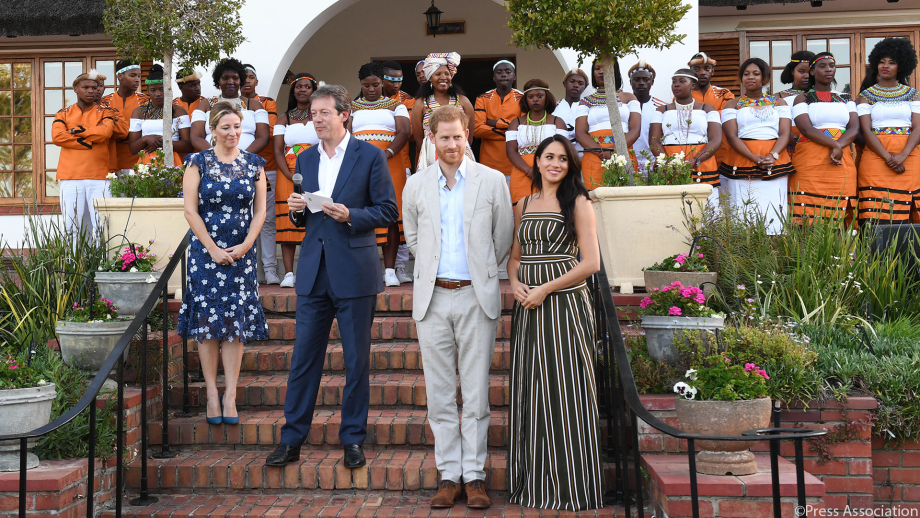
Their Royal Highnesses then had the opportunity to meet guests from a variety of sectors, including ocean protection and conservation, female township leaders, young entrepreneurs and Commonwealth and Chevening scholars.
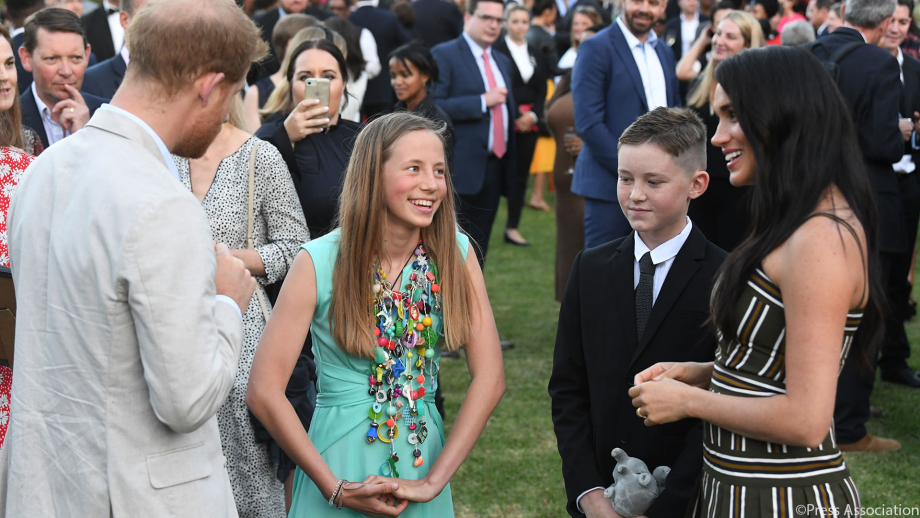
Day 3 - South Africa
Today The Duke and Duchess of Sussex carried out engagements in South Africa. The Duke of Sussex also travelled to Botswana for a day of engagements.
In the morning, Their Royal Highnesses and baby Archie, met Archbishop Desmond Tutu and his daughter, Thandeka.
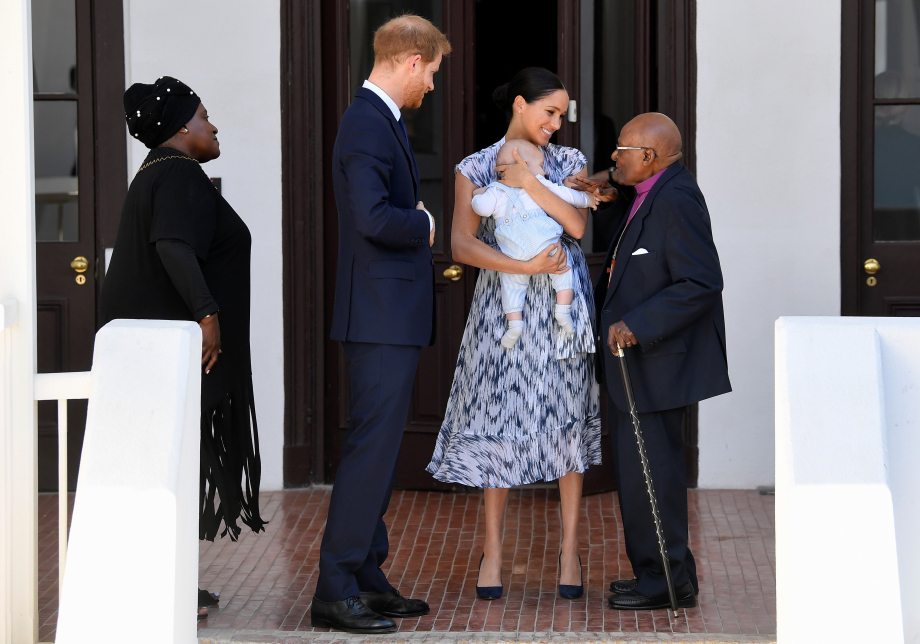
They met to discuss the work of the Desmond & Leah Tutu Legacy Foundation, which was founded in Cape Town in 2013.
The Foundation contributes to the development of youth and leadership, and facilitates discussions about social justice and human purpose.
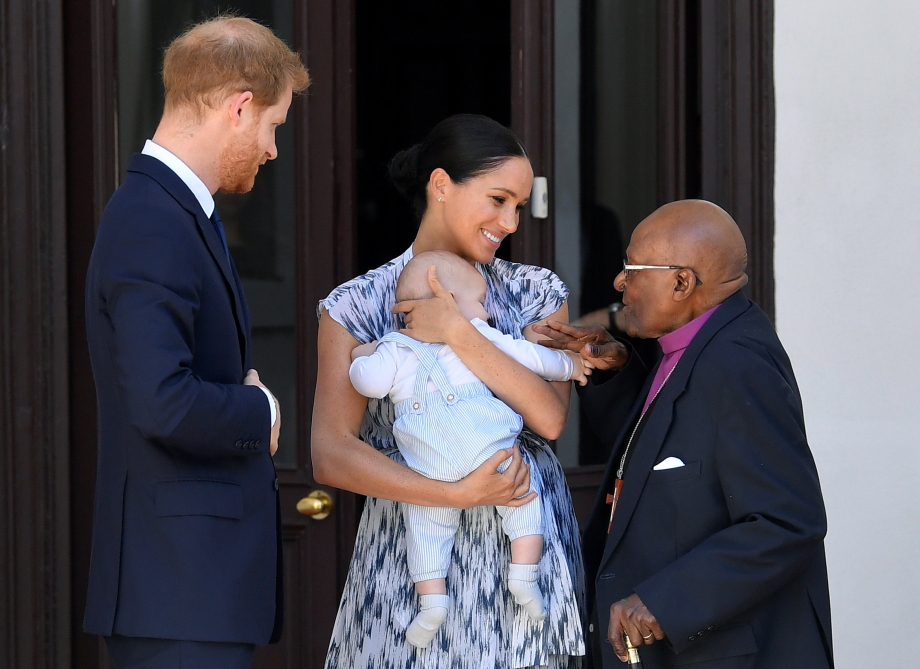
The Duke previously met Archbishop Tutu in 2015 when His Royal Highness presented him with the Insignia of an Honorary member of The Order of the Companions of Honour on behalf of Her Majesty The Queen.
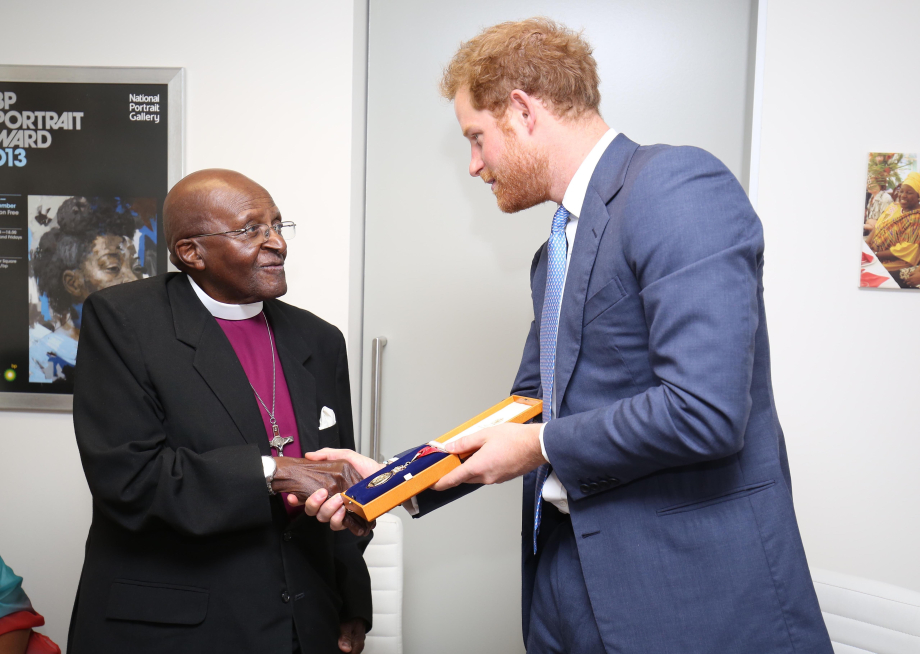
The award was presented in recognition of his services to UK communities and International Peace and Reconciliation.
The Queen has met Archbishop Tutu many times over the course of her reign including in 1995, 2004 (pictured below alongside The Duke of Edinburgh) and 2013.
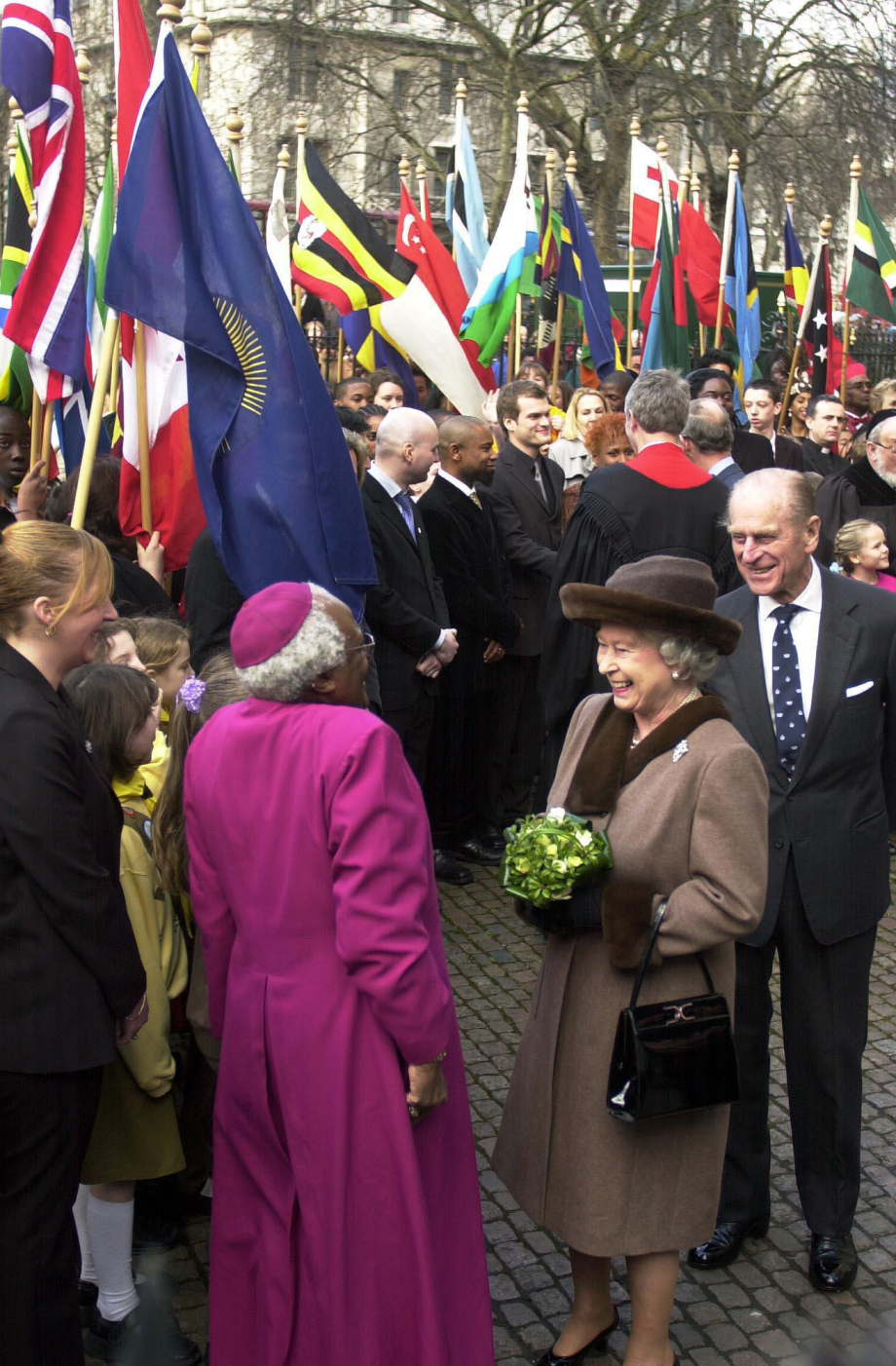
In the afternoon, The Duke of Sussex travelled to Botswana and The Duchess attended a women founders, social entrepreneur event at the Woodstock Exchange.
The UK-SA Tech Hub is a virtual hub working to develop the maturity of the South African tech ecosystem in order to enable strong digital economic growth over time.
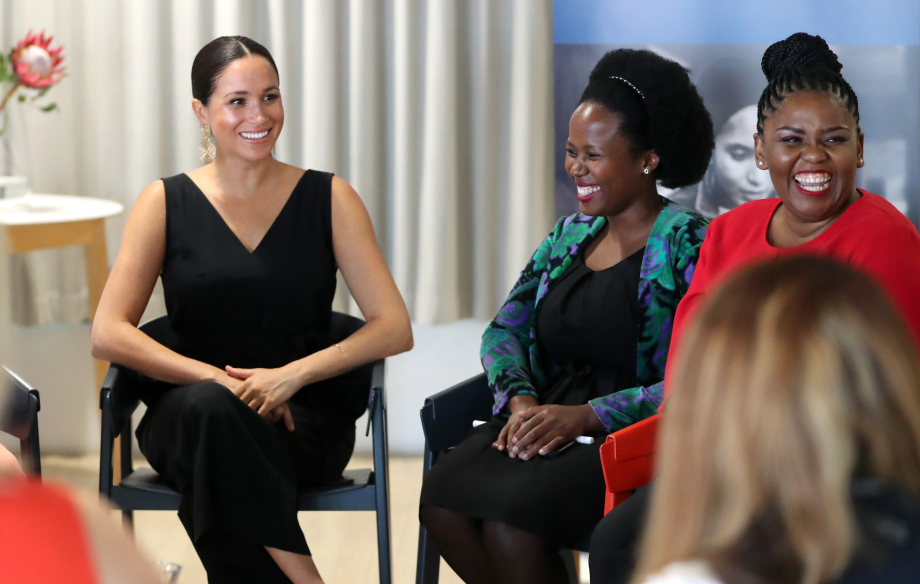
The Tech Hub focuses on skills development, capacity building, mentorship and access to markets by assisting entrepreneurs, particularly women, to acquire skills, resources and support.
Her Royal Highness met with inspiring female entrepreneurs, gathered around a table for a discussion on their experiences.
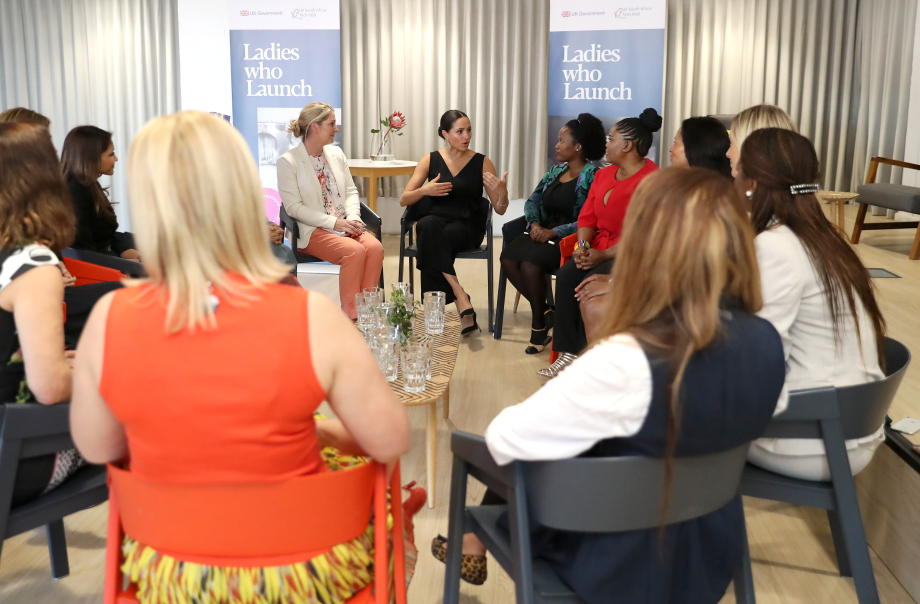
She learned how the ‘Ladies who Launch’ conversation series, that brings together a cross-section of female entrepreneurs, investors and corporate decision makers, is supporting and inspiring them.
This work is something which is a key focus for The Duchess of Sussex. In March 2019, The Duchess of Sussex joined a panel discussion convened by The Queen’s Commonwealth Trust to mark International Women’s Day, featuring female business and charity leaders, the panellists discussed the obstacles that still affect female empowerment across the world today, and the positive opportunities that come when women are given wider access.
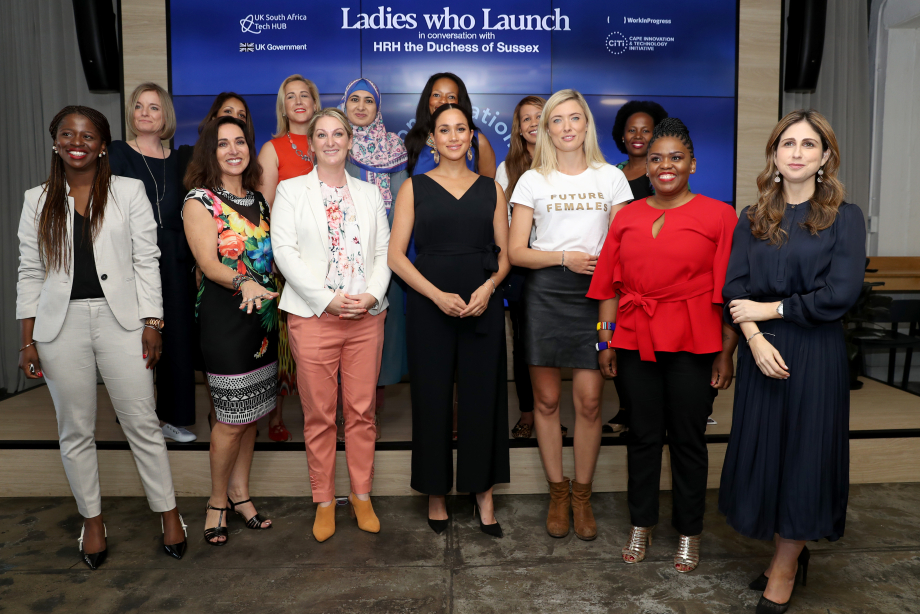
Next, The Duchess visited “mothers2mothers” in Cape Town.
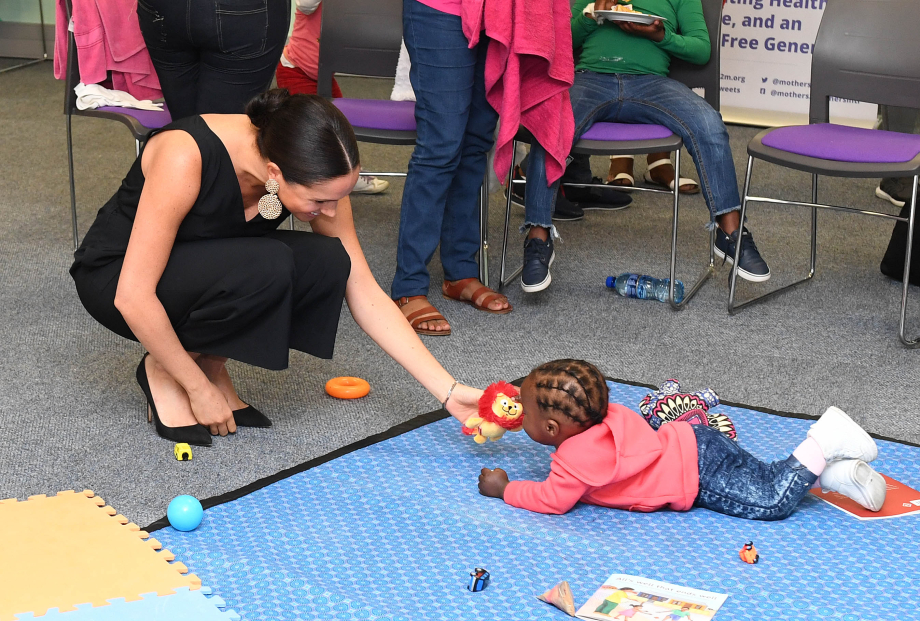
The not-for-profit organisation trains and employs women living with HIV as frontline health workers across eight African nations.
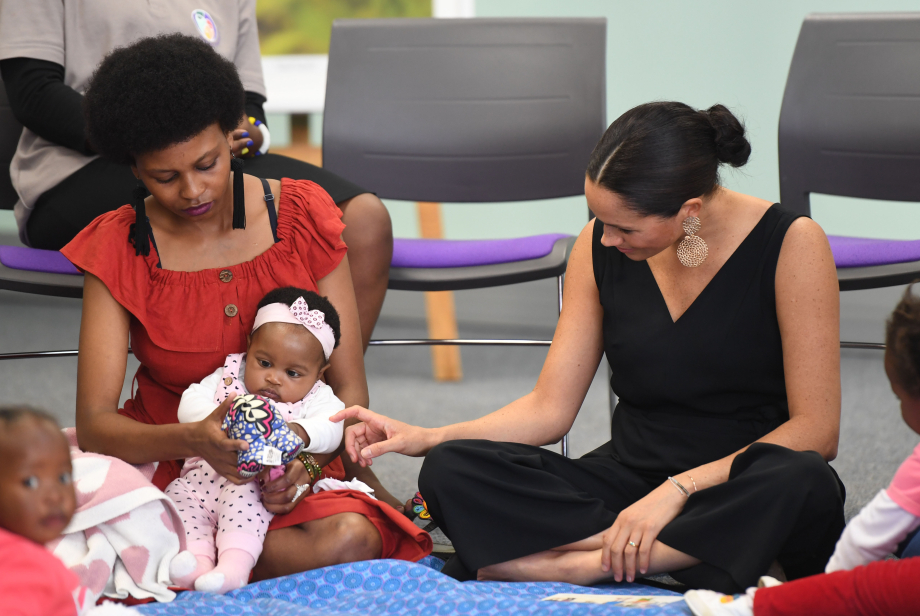
These “Mentor Mothers” work both in health facilities and door-to-door in local communities to deliver health services and education to other women and their families. The Duchess met some of the women who have been supported by the organisation.
Since it started in 2001, mothers2mothers has created over 10,000 jobs for women living with HIV and reached more than 11 million women and children under two years old.
Find out more about the work of The Duke and Duchess of Sussex here.
Day 4 - Botswana
Today, The Duke of Sussex attended engagements in Botswana as part of a royal Visit to Botswana.
First, The Duke visited the Chobe Tree Reserve where he joined schoolchildren from the local community to plant trees.
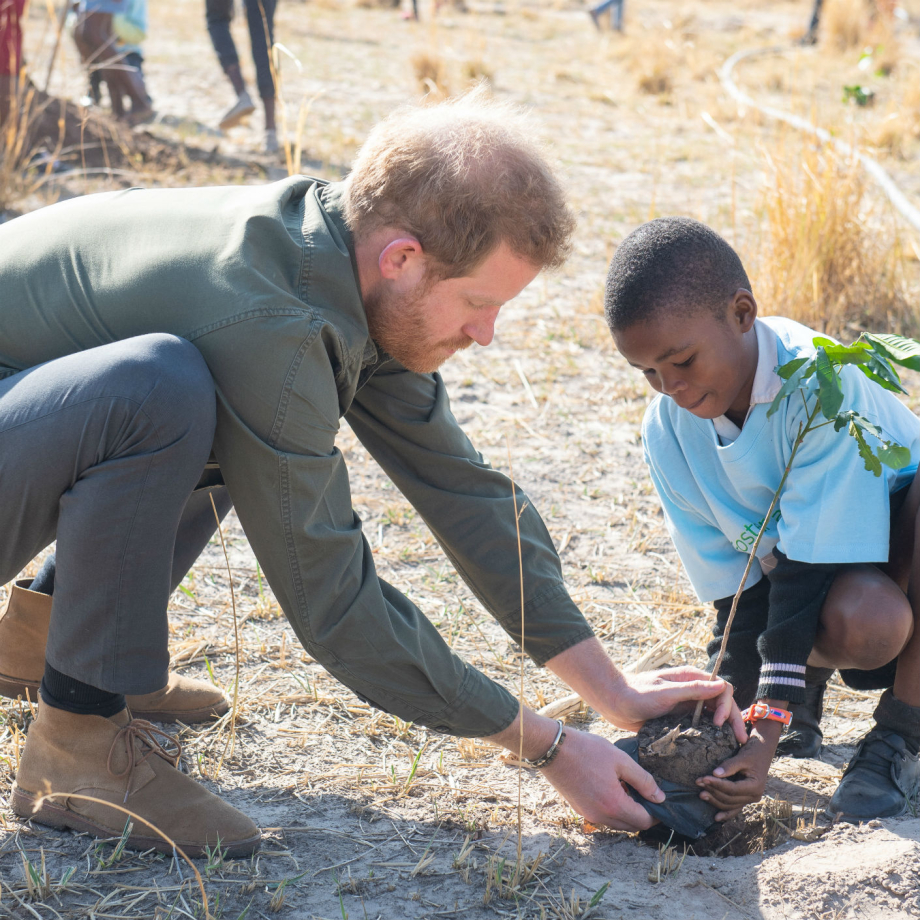
Chobe National Park is home to Africa’s largest elephant population (more than 17,000) and comprises more than 10,000km2 of rich ecosystems, diverse landscapes and an abundance of wildlife and birdlife.
They depend on the Chobe River as a critical source of water and now several species are locally extinct in the Park, with many species of trees along the riverfront nearly eradicated.
This project is part of community conservation effort to develop the site into a nature and cultural reserve and is focused on engaging the local community to learn and experience the natural and cultural heritage of northern Botswana.
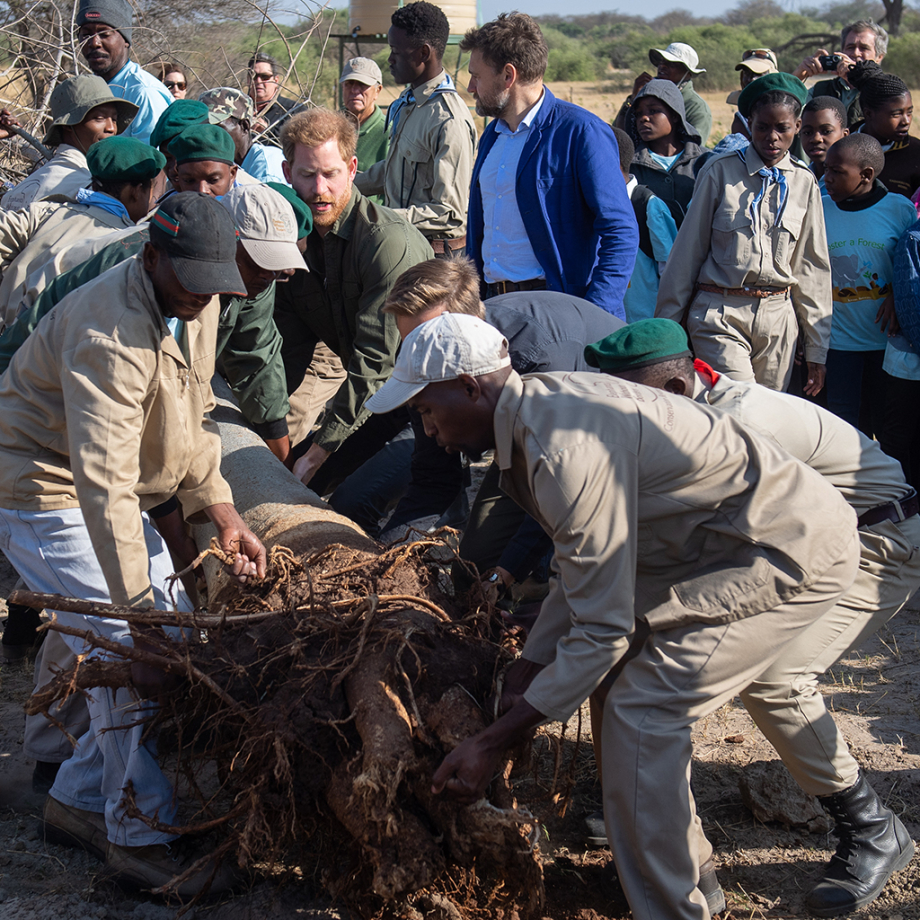
The first phase of the project is the restoring and rewilding of the Chobe Forest Reserve by restoration of riparian and wetland habitat.
The engagement was supported by Cool Earth, a UK-based non-profit organisation that works alongside communities to halt deforestation and climate change.
The Duke met children and teachers from across the district as part of an education programme where they learn about tree-plating and ecosystems.
He helped plant a Baobab Tree as part of the ‘Foster a Forest’ programme that works together with school children in the communities around Kasane.
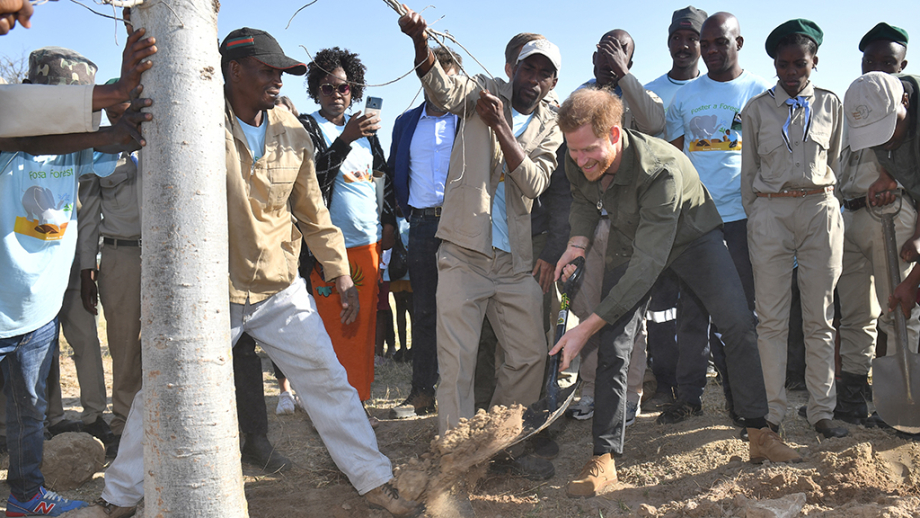
His Royal Highness then visited a Sentebale project supporting young people affected by HIV in Botswana.
HRH and Prince Seeiso of Lesotho founded Sentebale in 2006 to provide support and education to children and young people whose lives have been affected by HIV.
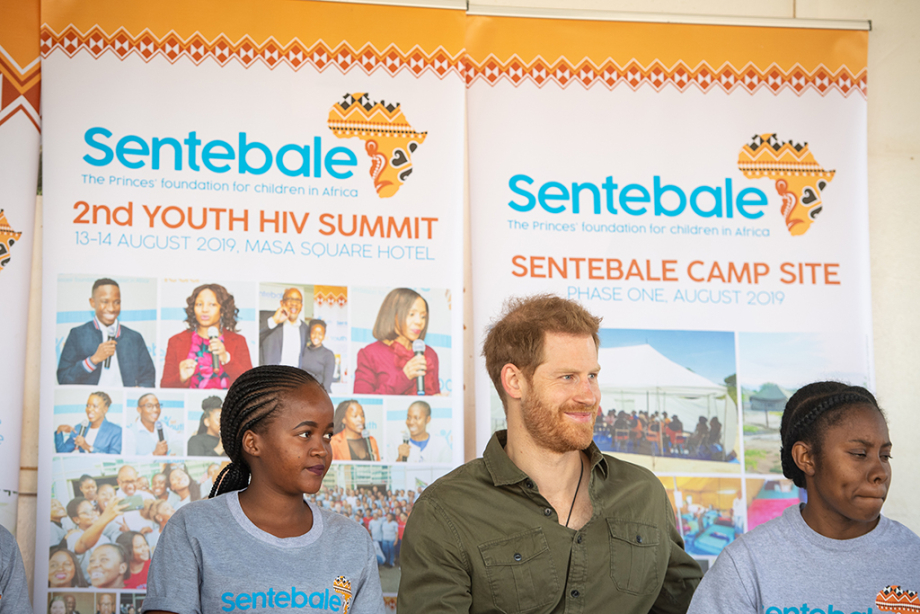
Today, The Duke joined Sentebale "Let Youth Lead" advocates in a camp activity which aims to instil confidence and peer support.
He joined an activity called ‘Super Camper’, where children are individually affirmed and praised to boost their self-confidence.
The advocates will then have the opportunity to share with The Duke why they advocate for their peers and the role they play in breaking stigma around HIV/AIDS.
In the afternoon, The Duke of Sussex accompanied the Botswana Defence Force (BDF) on a routine river patrol on the Chobe River, to learn about the successes and challenges experienced by the BDF.
The Botswana Defence Force (BDF) work to fight against poaching and human/wildlife conflict in Botswana. The Chobe River is situated on the border between Botswana and Namibia, with borders with Zambia and Zimbabwe nearby.
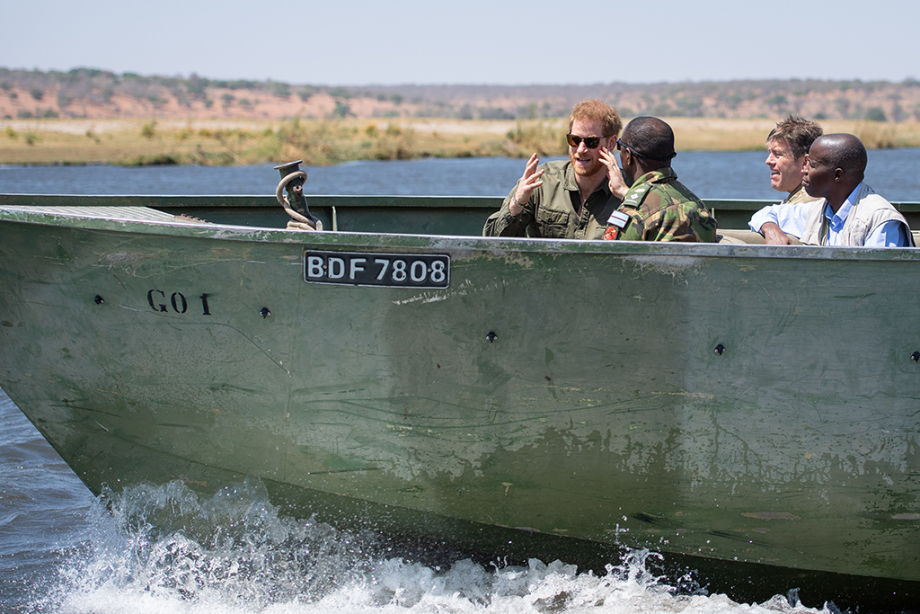
The country’s flora and fauna are also a significant driver of tourism - an important part of Botswana’s economy.
Find our more about the work of The Duke and Duchess.
Day 5 - Angola
|
The Duke of Sussex has visited a partially cleared minefield in Dirico, Angola; following in the footsteps of his late mother, Diana, Princess of Wales. 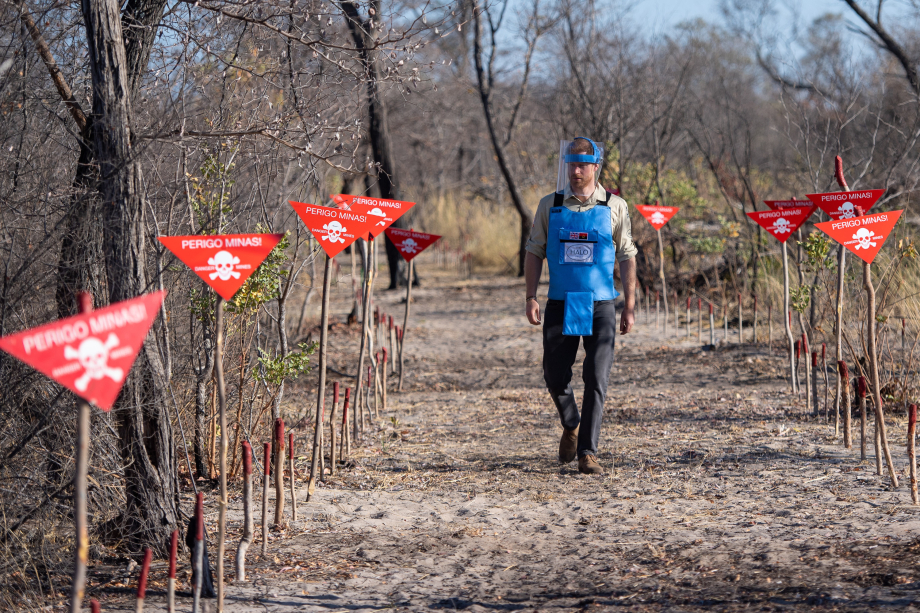
The Duke joined The HALO Trust in their work to help clear the area to enable safe access for the local community. His Royal Highness set off a controlled explosion to destroy a landmine. The Duke learnt about the work of The Halo Trust and their goal to clear this particular area of land mines by October 2019. In 1997, Diana, Princess of Wales visited Huambo to bring global attention to the threat of landmines and the people whose lives were being destroyed. The area is now transformed. A small community, with colleges, schools and businesses occupies the once uninhabitable area. His Royal Highness has been a strong advocate for eliminating the threat posed by landmines to some of the most vulnerable people around the world and continues the work undertaken by his mother. In April 2017, The Duke launched the Landmine Free 2025 campaign with The HALO Trust and Mines Advisory Group. The Duke also visited the newly renovated and newly named Princess Diana Orthopaedic Centre, which was also visited by Diana, Princess of Wales in 1997. His Royal Highness met patients and their families in the rehabilitation room and the paediatric room before seeing prosthetic limbs in production in the workshop. The centre provides essential support to the local community and province, treating those injured by mines, accidents and affected by illnesses, and aims to be Angola's national centre of excellence in orthopaedic care. Read a speech delivered by The Duke of Sussex at the renaming of the centre. 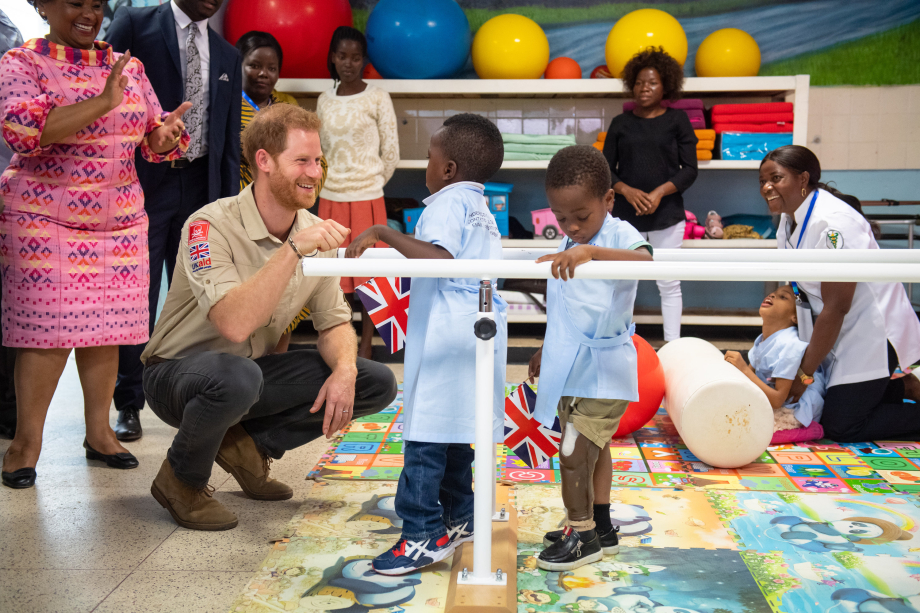
The Duke of Sussex welcomed the Luengue-Luiana National Park as the newest member of The Queen's Commonwealth Canopy. 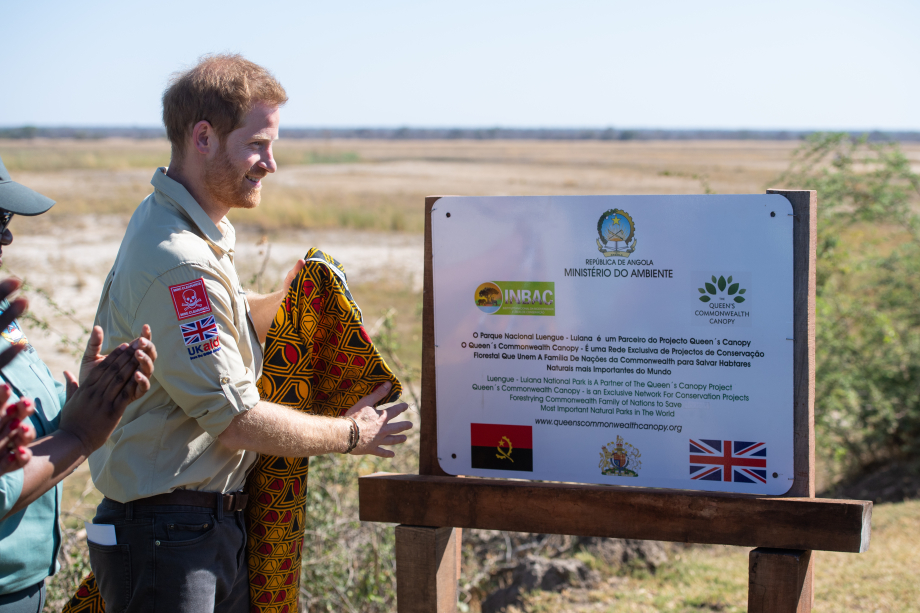
The QCC is a unique network of forest conservation initiatives to preserve forests for future generations. Involving all 53 countries of the Commonwealth, The Queen's Commonwealth Canopy initiative will mark Her Majesty's lifetime of service to the Commonwealth. The conservation of these forests will help protect an ancient elephant migration route, with Angola once being home to over 200,000 elephants before the civil war. The hope is to create safe 'corridors' through the forest to encourage elephants to return to the region safely. The Duke of Sussex has been involved in a number of QCC projects in the UK, the Carribean, New Zealand, Australia, Botswana and Tonga.
|
Day 6 - Angola
Following a guard of honour at the Presidential Palace, The Duke of Sussex today had an audience with His Excellency João Lourenço, President of Angola.
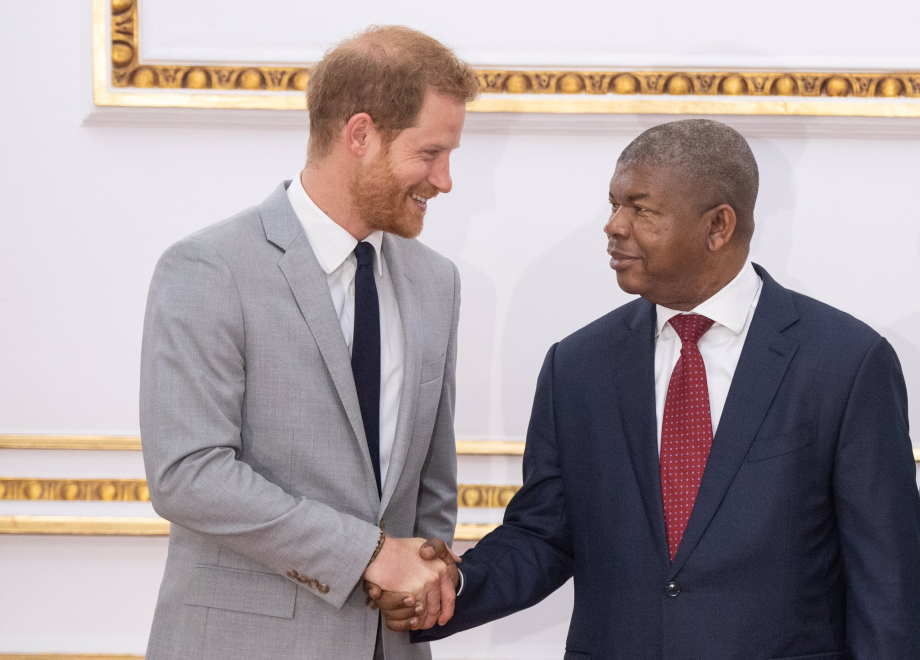
After the audience, The Duke received a briefing from First Lady Ana Dias Lourenços on the work of Born Free to Shine, a project spearheaded by the First Lady, which focuses on preventing HIV/AIDS transmission from mothers to babies.
The project addresses both the medical and socio-educational issues around HIV and AIDS which are both still taboo issues in Angola. Despite Angola’s low infection rate, other factors such as high fertility and a young population, combined with a lack of awareness, are driving infection rates up. Rates of mother-to-baby transmission are the highest in sub-Saharan Africa.
The First Lady has just approved a national plan to tackle mother-to-baby HIV/AIDS transmission.
Meanwhile, back in South Africa, The Duchess of Sussex tied a ribbon at the site where 19-year-old Cape Town student Uyinene Mrwetyana was murdered last month, to pay her respects and to show solidarity with those who have taken a stand against gender based violence and femicide.
Day 7 - Malawi
Today, The Duke of Sussex met The President of Malawi, visited an organisation which supports young women and also attended a reception at The British High Commission on the Royal Visit Malawi.
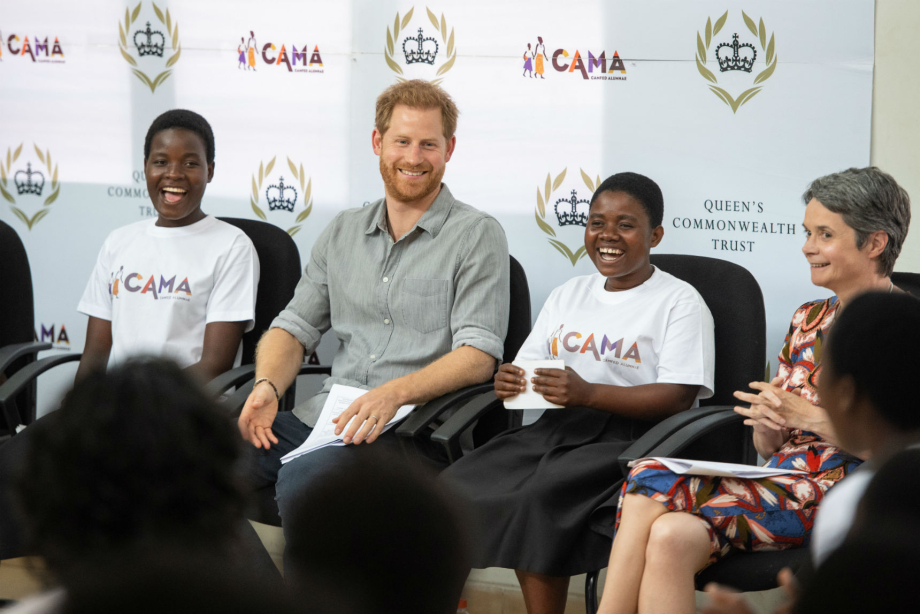
This afternoon The Duke of Sussex had an Audience with Professor Arthur Peter Mutharika, President of the Republic of Malawi at State House.
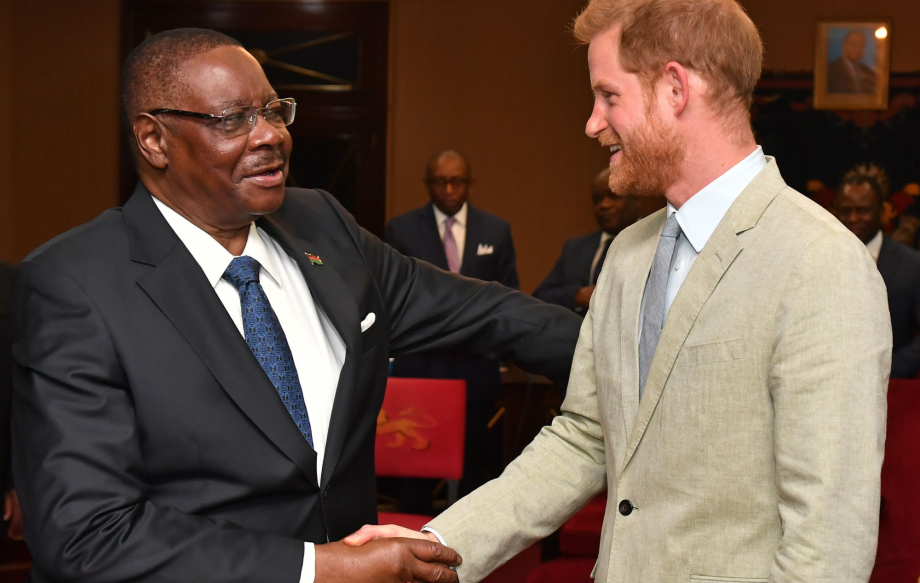
This morning His Royal Highness also visited Nalikule College of Education to learn about the CAMA network, which is a network of young women who have been supported to attend secondary school through help from the Campaign for Female Education (CAMFED).
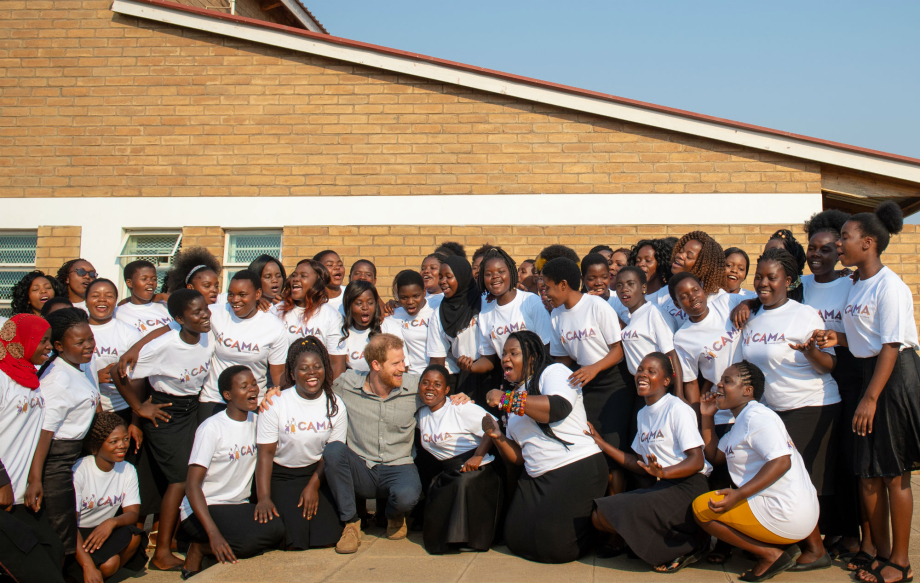
CAMA is 21 years old, with 140,000 members across Africa. In Malawi there are 17,500 members of the CAMA network and on average each CAMA member now supports another three children to go to school with her own resources.
They are role models, leaders and entrepreneurs, working to lift their communities out of poverty.
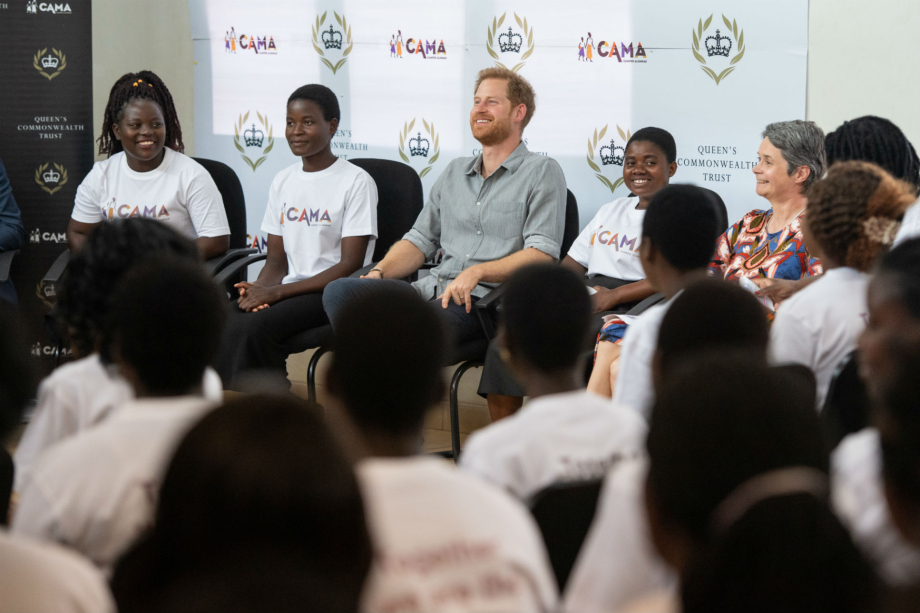
The Queen’s Commonwealth Trust (QCT) has been working with CAMA since 2017, DFID Malawi has been supporting CAMFED and CAMA since 2012. The Queen is Patron, and The Duke and Duchess of Sussex are President and Vice-President of the QCT.
At today’s engagement The Duke met young people and The Duchess of Sussex joined the conversation via live video link.
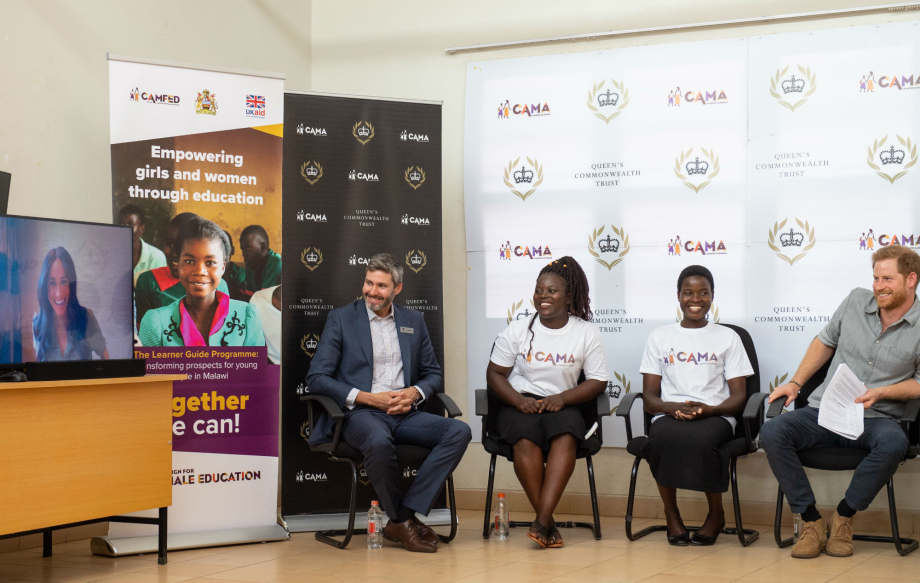
He also joined a discussion about the programme and the benefits it has to the community.
The Duke also attended a reception hosted by Holly Tett, the British High Commissioner where he had a chance to meet people from all over Malawi including representatives from the education, wildlife conservation and charity sectors.
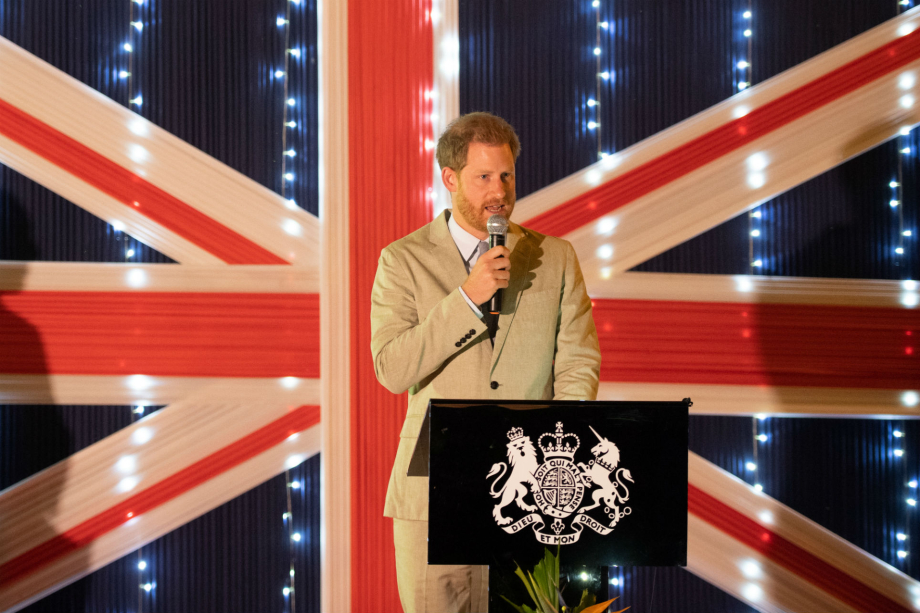
Day 8 - Malawi
The Duke of Sussex continued his tour of Southern Africa with a trip to Liwonde National Park in Malawi.
The Duke laid a wreath at a memorial site inside the park and paid tribute to Guardsman Mathew Talbot, who died in May of this year whilst on an anti-poaching patrol.
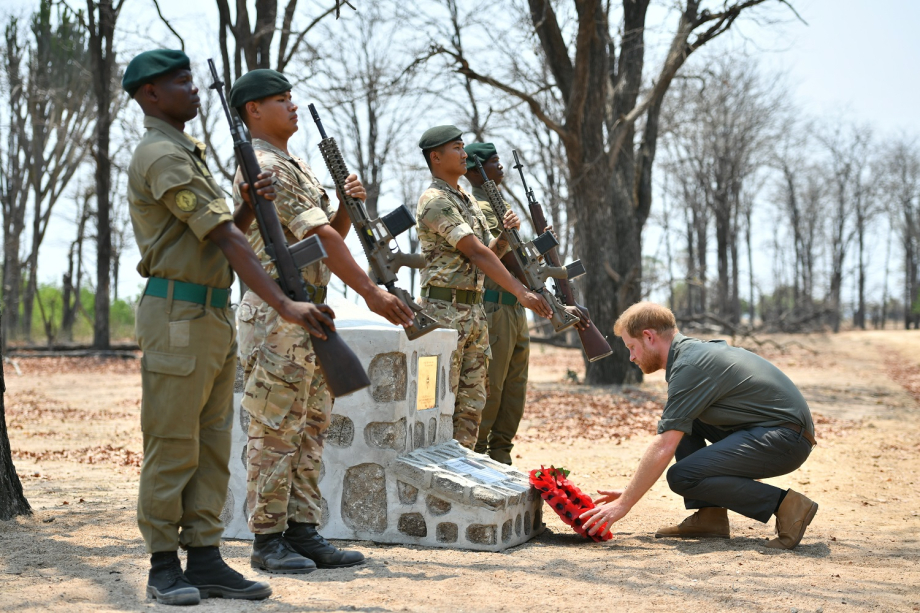
Guardsman Talbot was a member of The Coldstream Guards, deployed to the Park, to work with local park rangers as a Counter Poaching Operator.
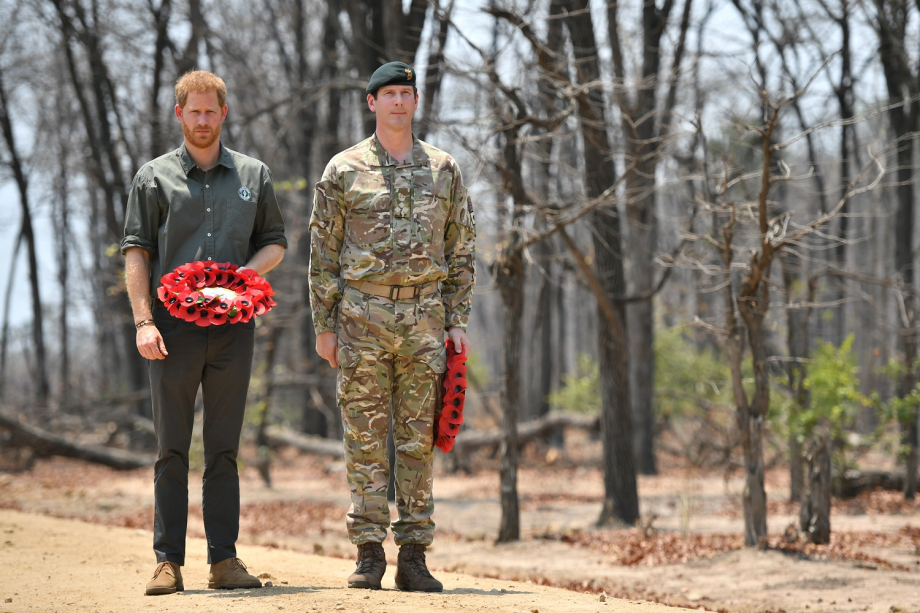
The Duke of Sussex became President of African Parks in December 2017. British soldiers are deployed across Africa to help with the fight against illegal wildlife poaching.
Whilst in the park, The Duke dedicated Liwonde National Park and the adjoining Mangochi Forest to The QCC. The Queen’s Commonwealth Canopy initiative began in 2015, with the aim of creating a global network of protected woodland.
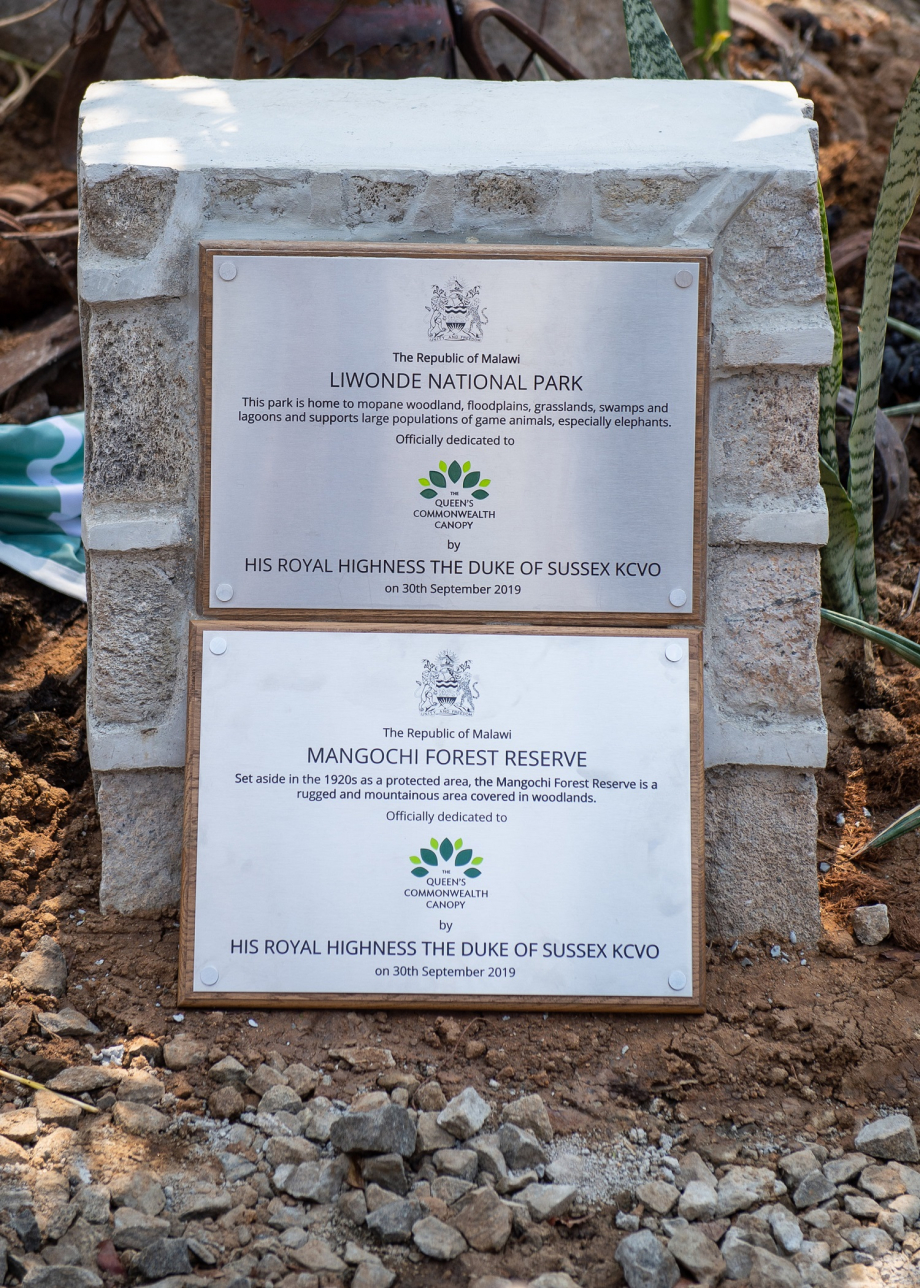
The Queen’s Commonwealth Canopy hopes to conserve indigenous forests for future generations. Many Commonwealth countries have committed to planting millions of trees to help tackle climate change.
The Duke has joined forces with National Geographic to raise awareness of the vital roles that trees play in the earth’s eco-system in a special “looking up” campaign. The new campaign encourages people to share photos of trees from around the world.
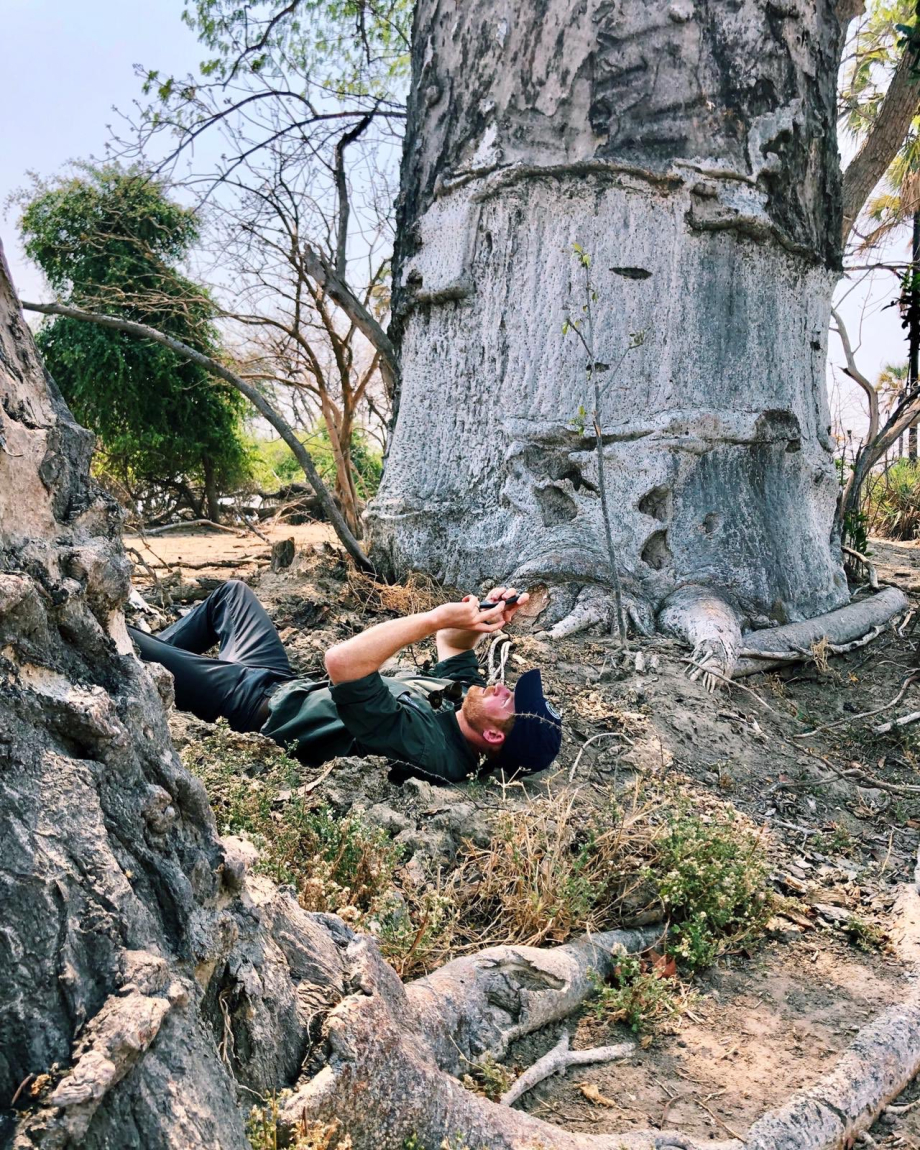
“The QCC was launched by my grandmother in 2015, and already almost 50 countries have taken part – dedicating indigenous forests for conservation, or committing to planting millions of trees. It is so inspiring that the Commonwealth family has joined forces to save one of the world’s most important natural habitats.
The Duke of Sussex
“As The Queen’s Commonwealth Youth Ambassador, I am particularly proud of how this programme will create a physical legacy of Her Majesty’s leadership of the Commonwealth - not just for our generation, but for our children, and their children too." Read The Duke's speech in full here.
Many members of The Royal Family have supported The Queen's Commonwealth Canopy over the past few years.
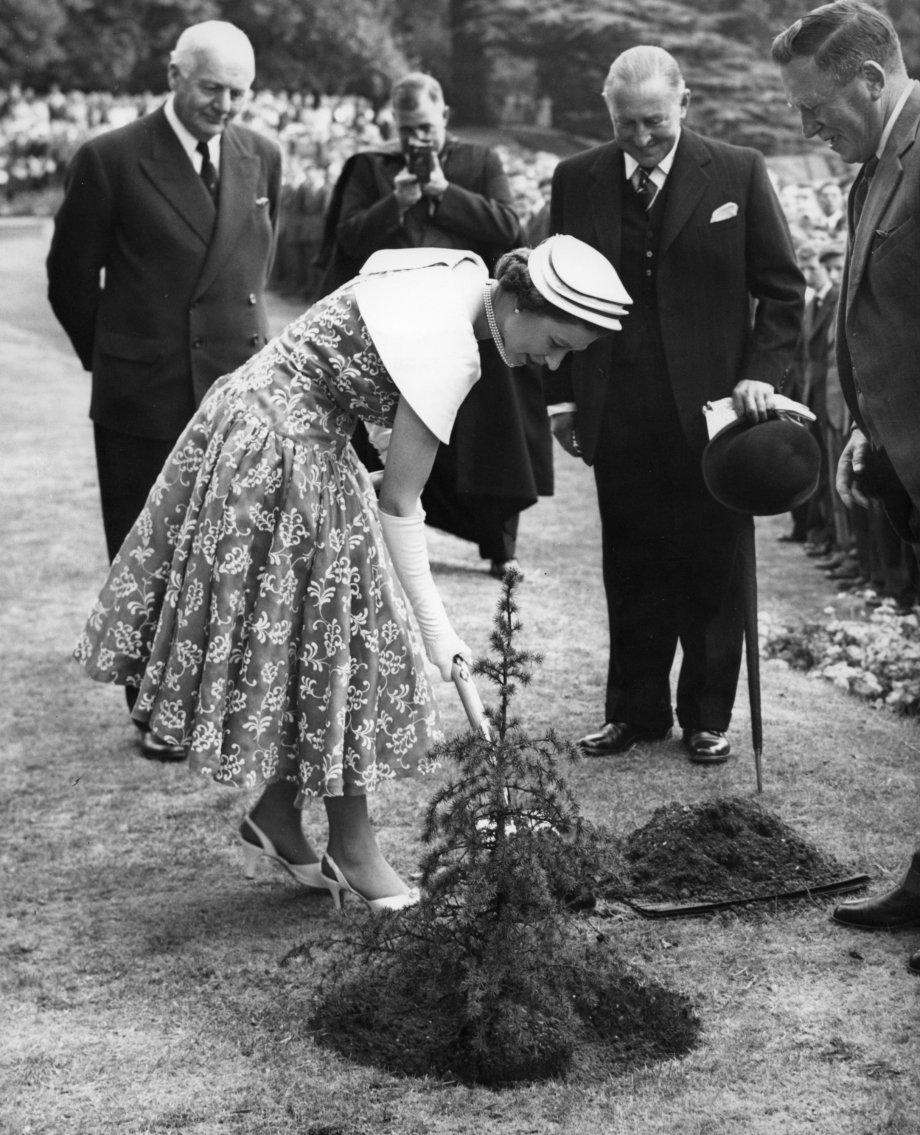
Her Majesty The Queen talked about her support of the project during a documentary with Sir David Attenborough and has also planted many trees over the course of her reign.
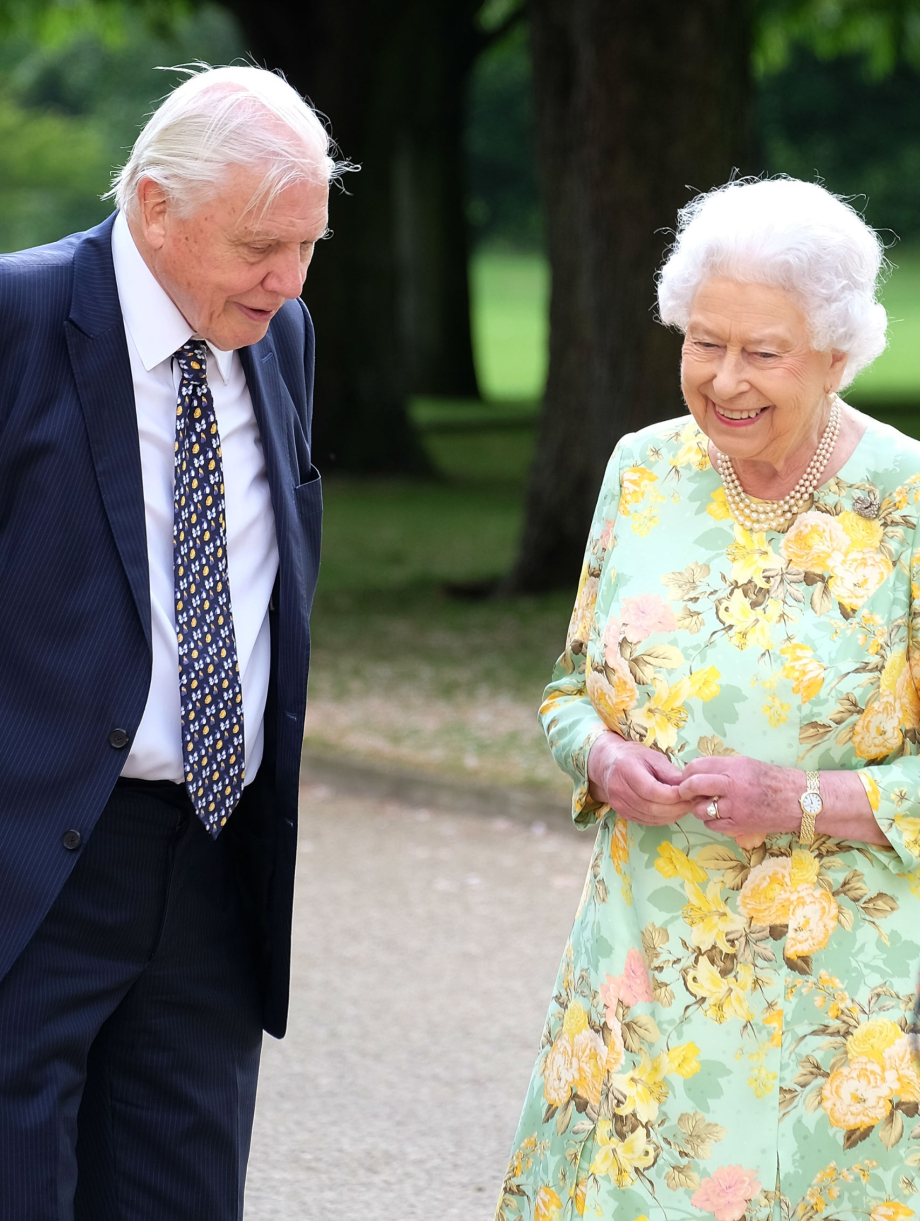
Day 9 - Malawi and South Africa
Today, The Duke of Sussex continued on the Royal Visit Malawi visiting Mauwa Health Centre to find out more about the services and needs of people in the community.
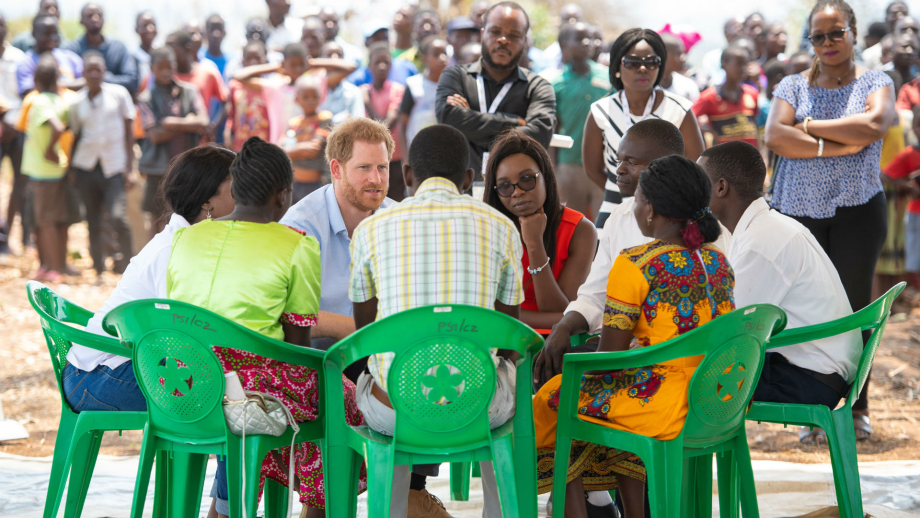
And The Duchess of Sussex visited the University in Johannesburg in her official role as Patron of the Association of Commonwealth Universities (ACU).
At the clinic in Malawi The Duke found out about how the clinic serves 23,000 residents and includes treatment of illnesses, vaccinations and pregnancy care.
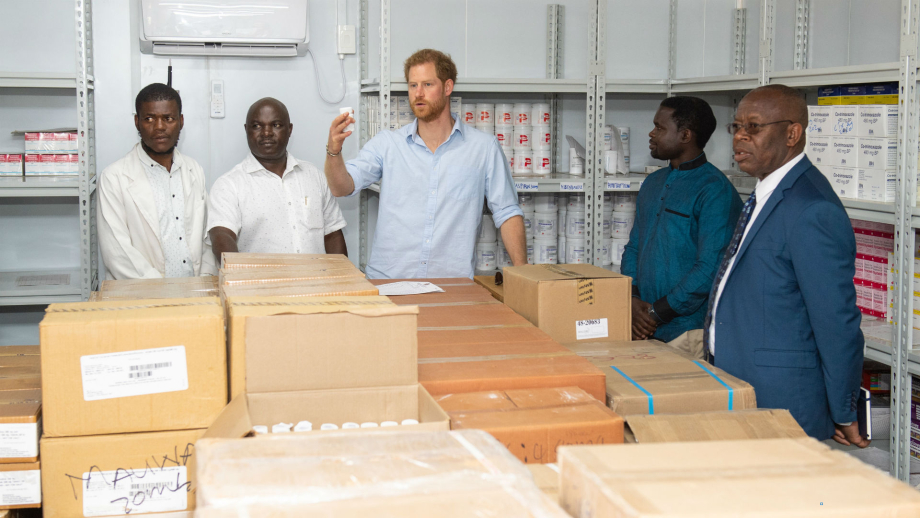
His Royal Highness saw a Pharmacy-in-a-Box installation to find out how the unit works and its importance to the specific health care challenges of the area.
Today, The Duchess joined a number of academics and students gathered for a roundtable discussion at the University of Johannesburg.
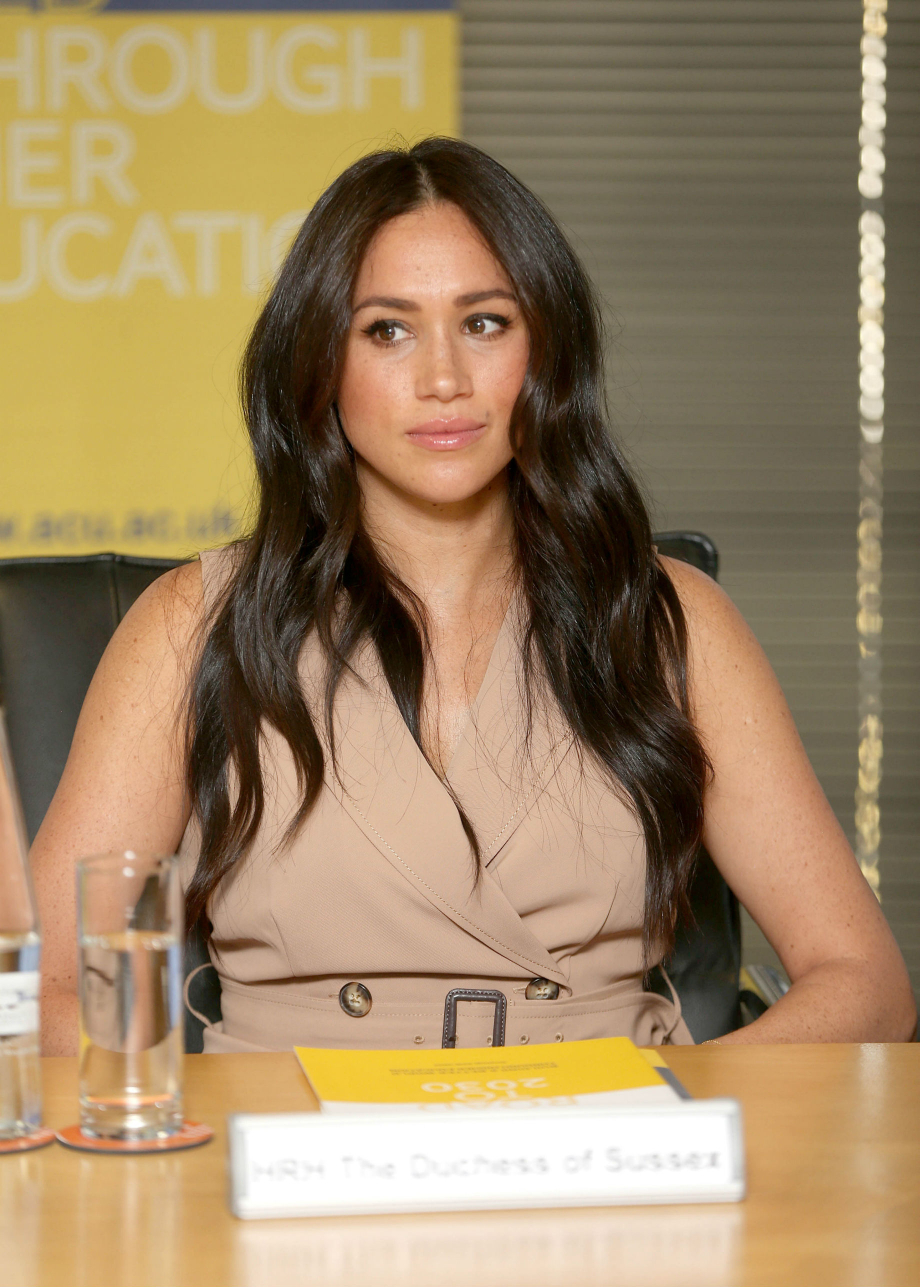
The ACU brings together universities from around the world in championing higher education and The Queen held the role as Patron for 33 years until January of this year.
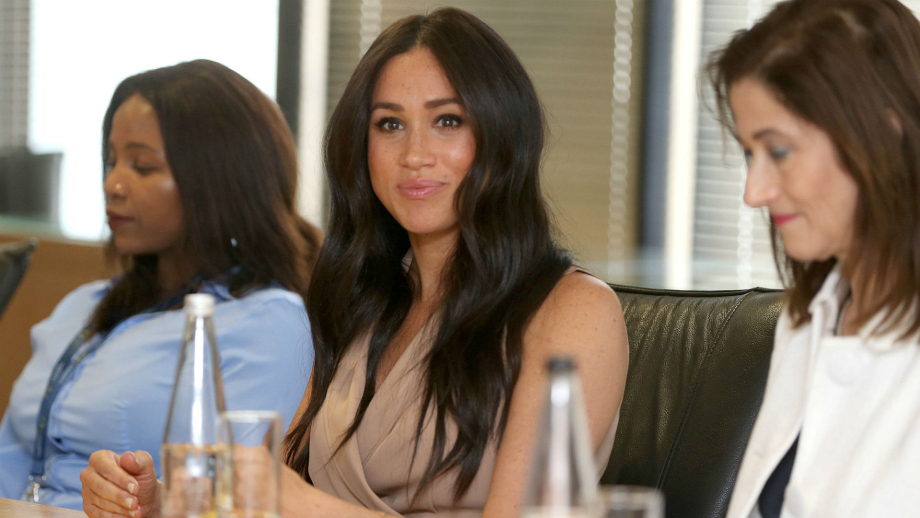
Her Royal Highness also joined a discussion about gender-based violence where Her Royal Highness found out about the nature of violence against women and girls, and how the charity ActionAid is working to combat it.
Day 10 - Johannesburg
On their final day of their visit to Southern Africa, The Duke and Duchess of Sussex spent time visiting youth unemployment charities in Johannesburg. In Tembisa township Their Royal Highnesses met young entrepreneurs at the YES hub. The hub aims to tackle South Africa's issues of youth unemployment, by creating one million new work opportunities in the next three years.
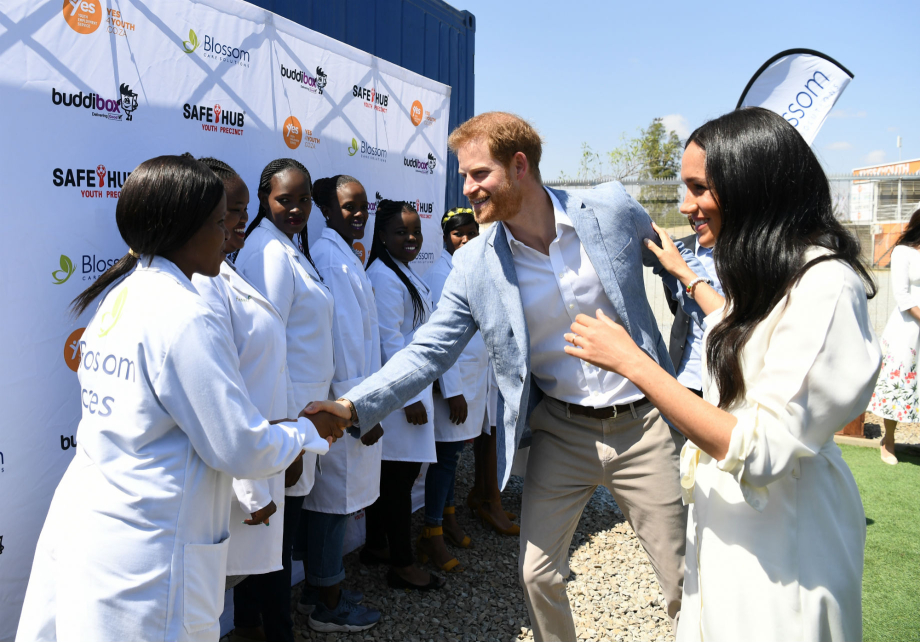
During their visit, they were able to sample food from ‘Chef Mish’ - a local masterchef winner - which he makes at the site as part of his catering business and cafe. They then joined YES community members to take part in training and tests that will help them gain skills and find work.
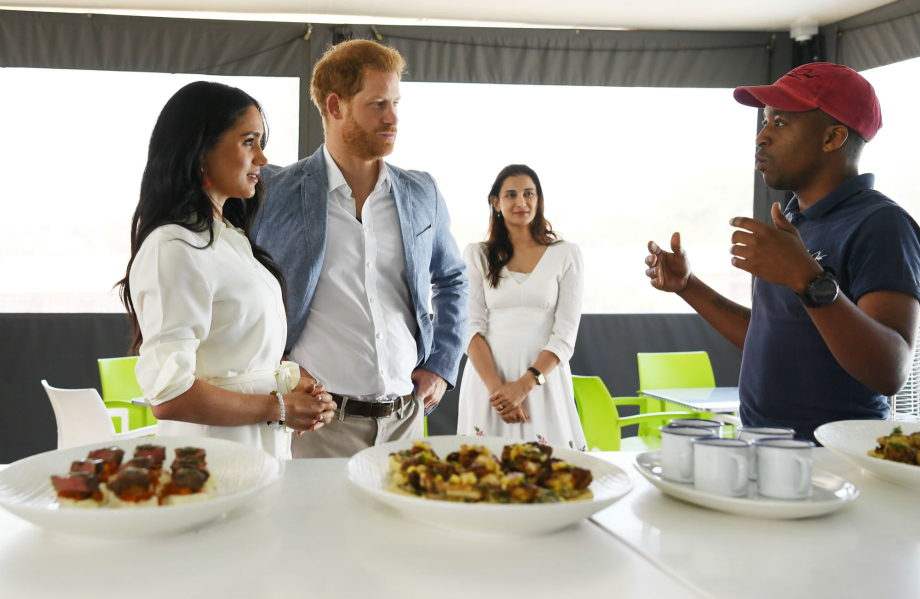
Next, The Duke and Duchess met with a young entrepreneur in the Aquaponics facility. They learnt about the organic produce he is growing in the township and supplying to local restaurants.
Finally, The Duke and Duchess met fourteen young women at Blossom Care Solutions - who are making 80,000 sanitary pads every month for women in their community. They are 100% compostable, and provide an essential low-cost product for women and girls.
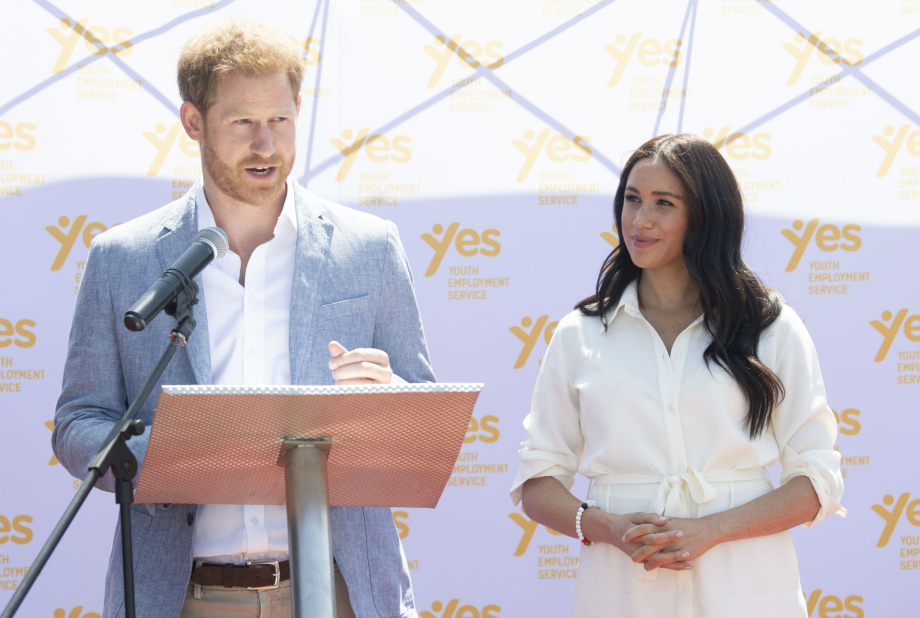
During The visit The Duke gave a speech
In my role as The Queen’s Commonwealth Youth Ambassador, I am so incredibly fortunate to meet young people who are determined to make a real difference and make their mark on the world through action.
The Duke of Sussex
The Duchess also gave remarks.
There’s so much ingenuity here, there’s so much promise here, that given the right level of support and resources that you need, the potential is astronomical, and you can see that there.
The Duchess of Sussex
Later in the day The Duke and Duchess of Sussex were pleased to spend time with Graça Machel - the politician, humanitarian and international advocate for women's and children's rights. Graça was married to form South African President and anti-apartheid campaigner nelson Mandela. Both Their Royal Highnesses and Graça share a passion for equality and human rights.
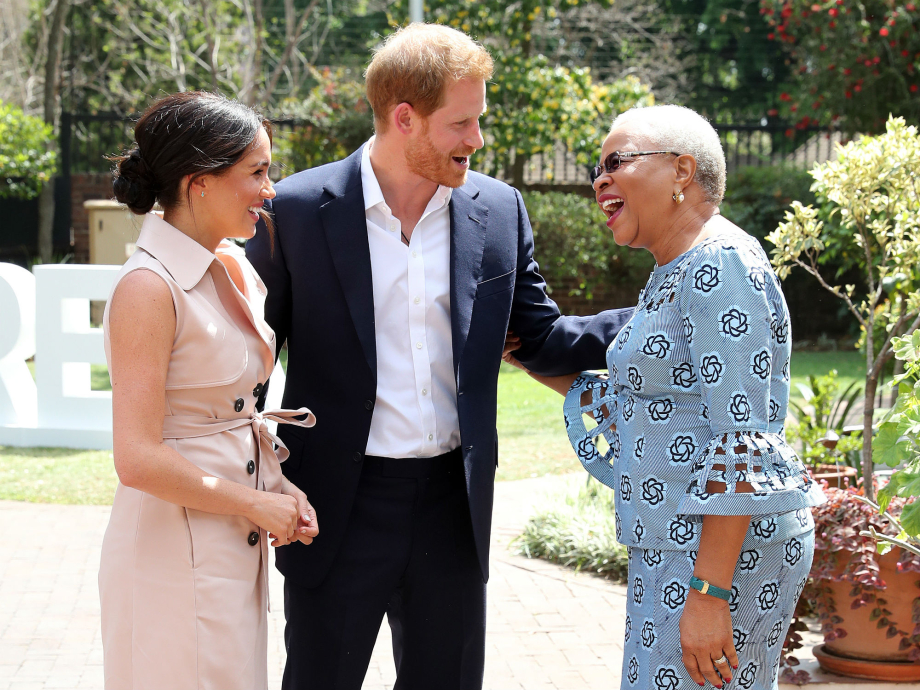
In her final speech of The Royal Tour in Southern Africa, The Duchess of Sussex delivered a speech at The Creative Industries and Business Reception:
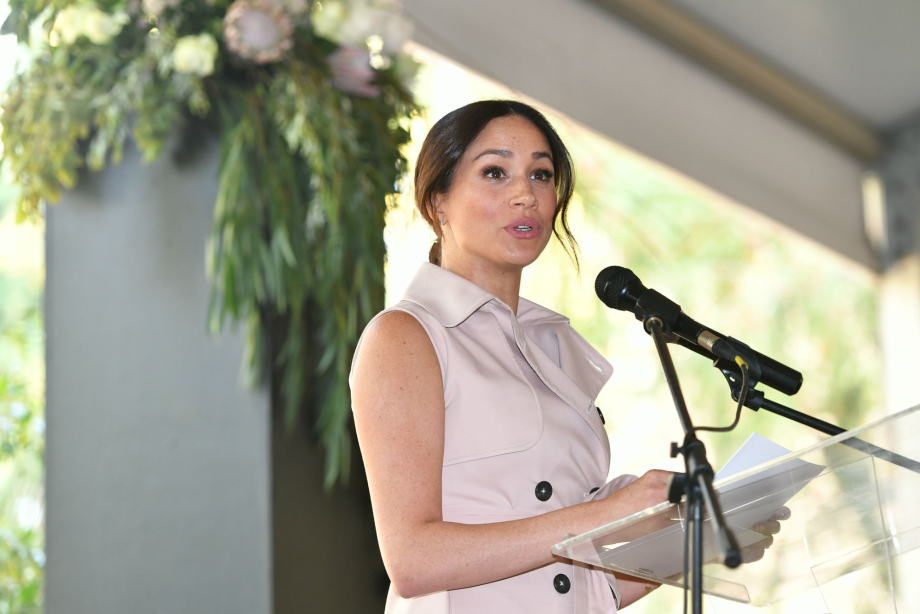
"At our visit this earlier this morning I was struck by a small sign that was posted on the wall for the female entrepreneurs – and it said: “visualize your highest self, and show up as her”. This is the spirit of the women and girls I have met on this trip."
Read her full speech here
The Duke and Duchess of Sussex also met President Ramaphosa as they concluded their Royal Visit to Southern Africa.

